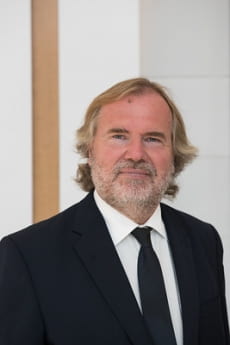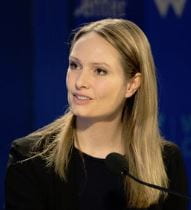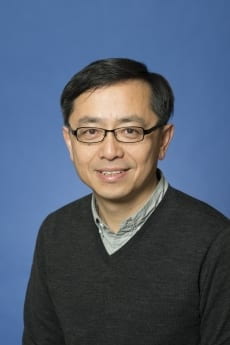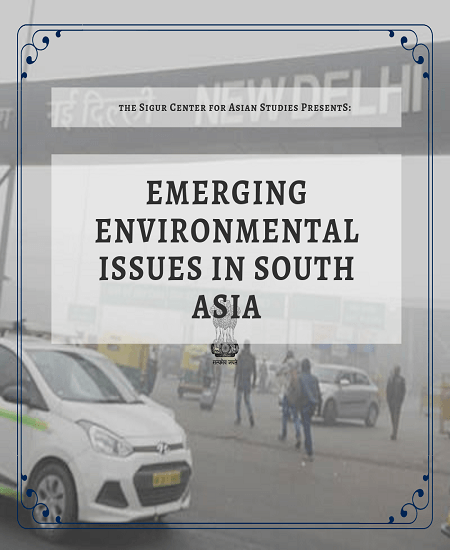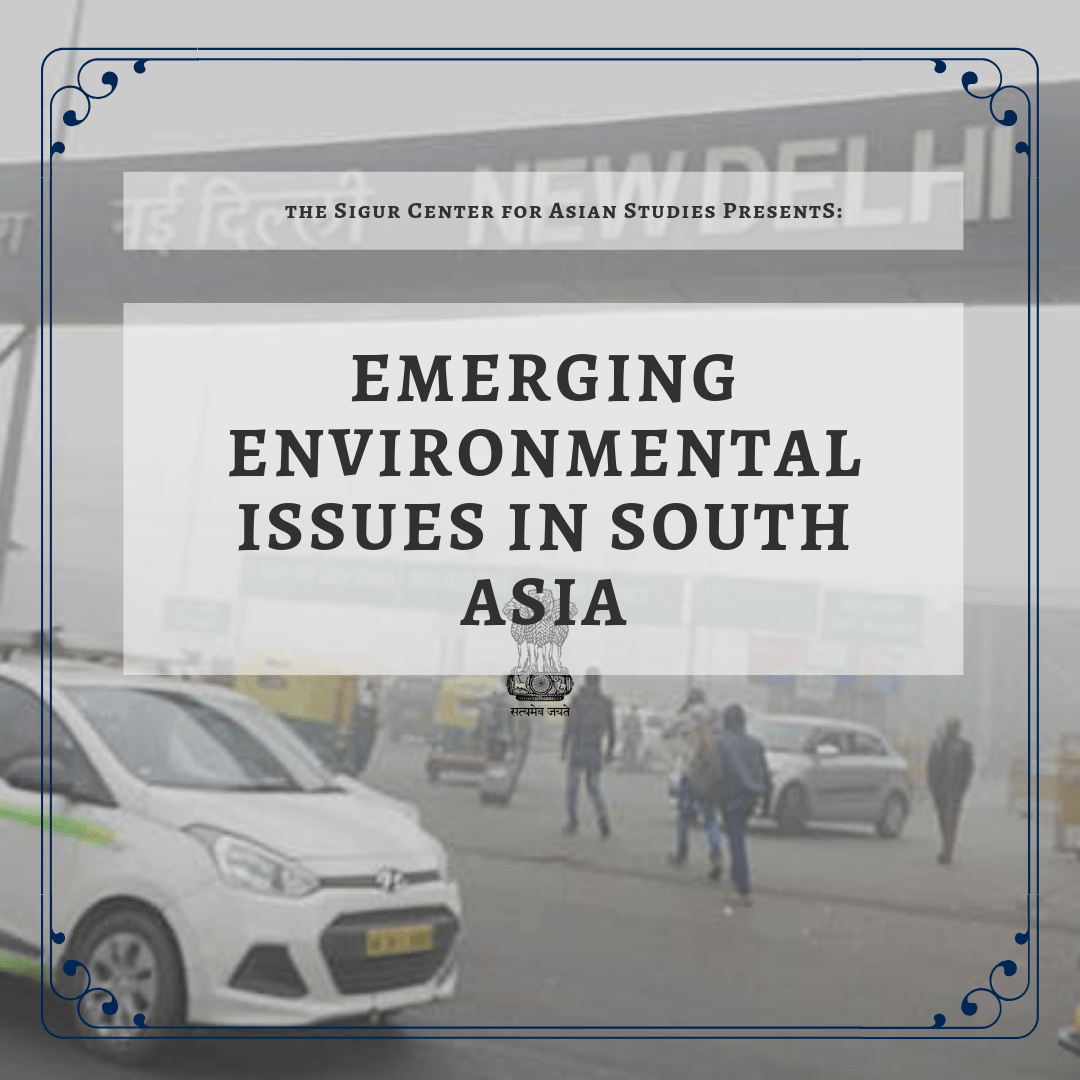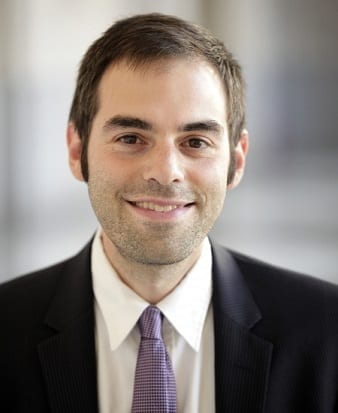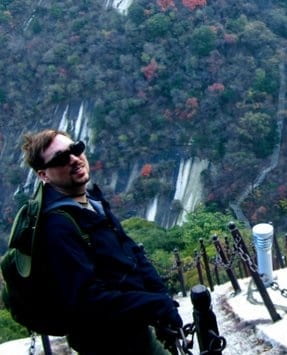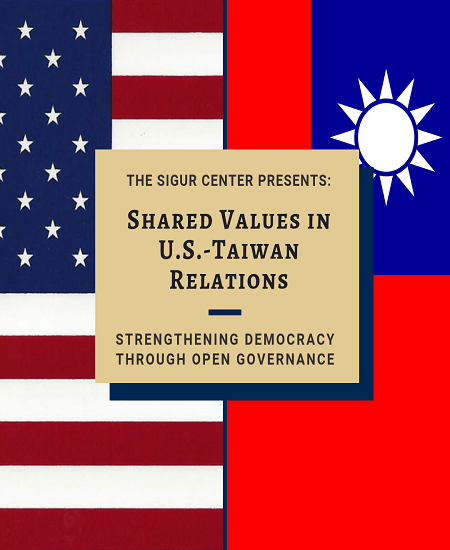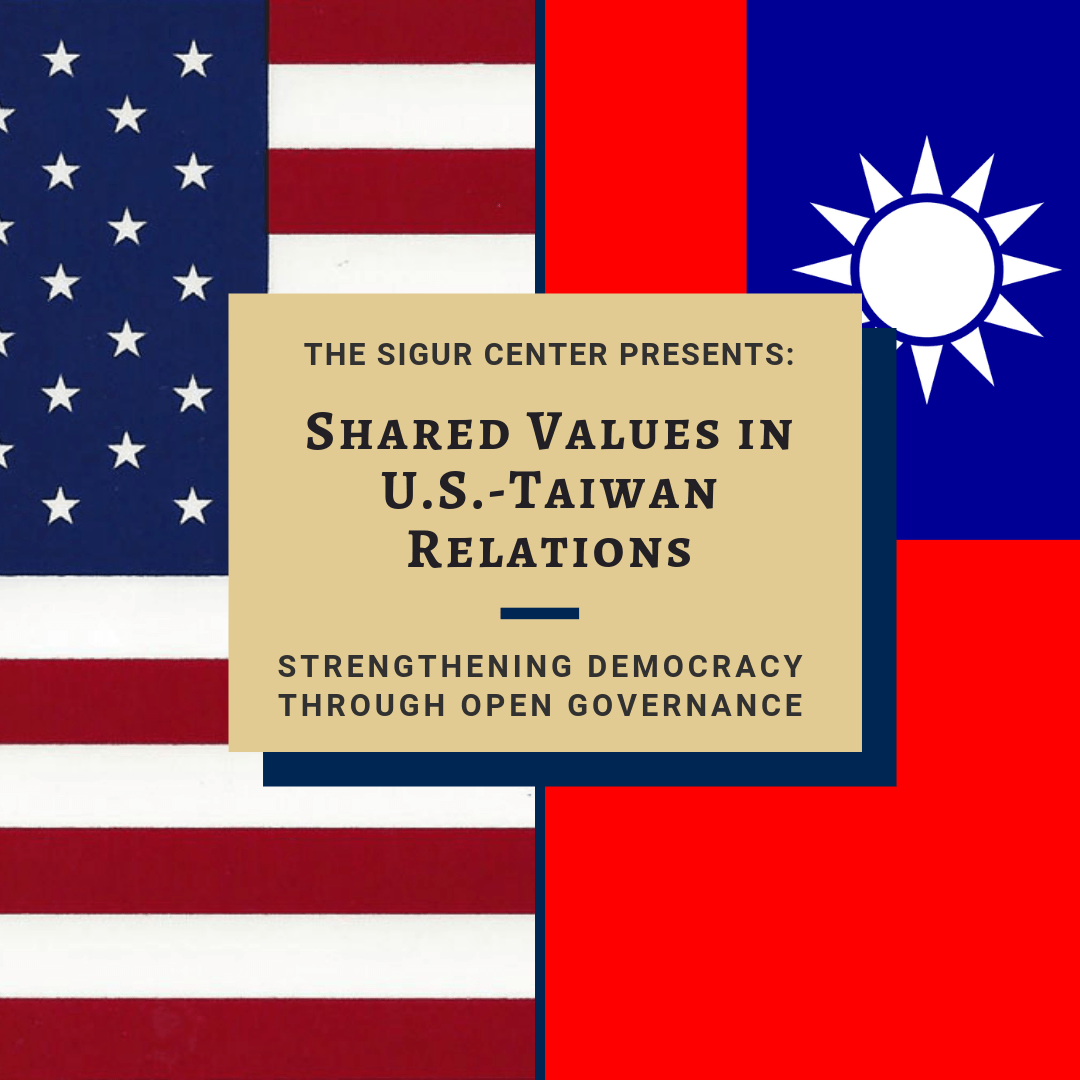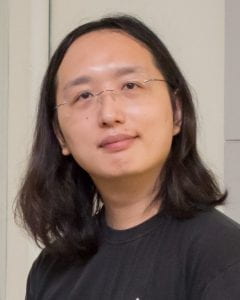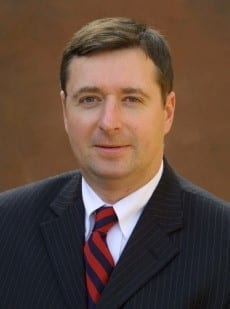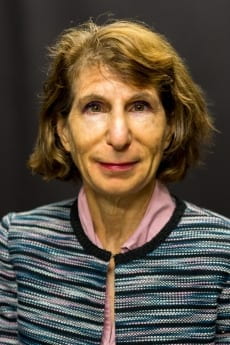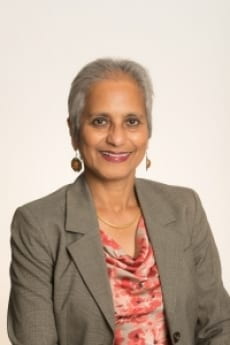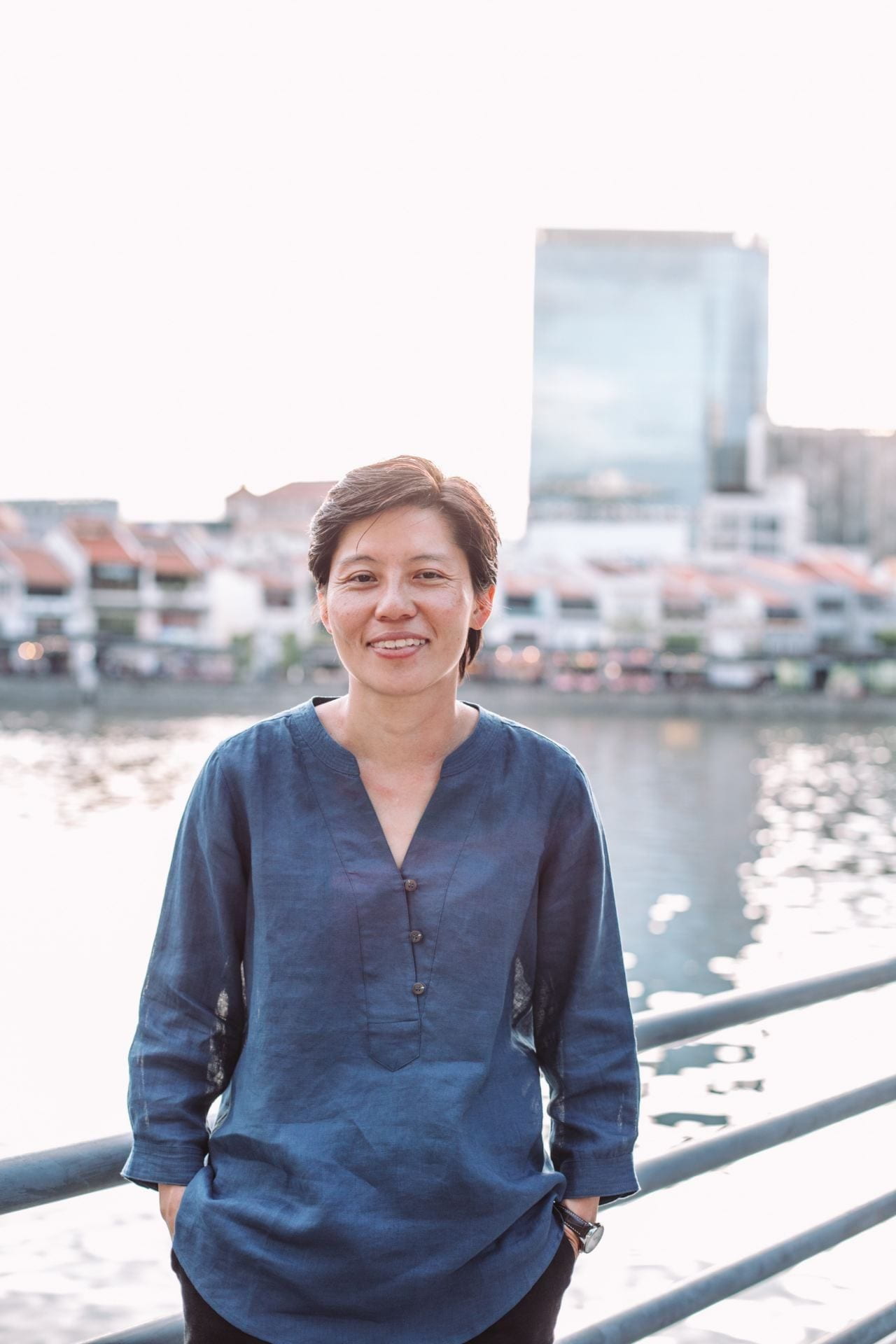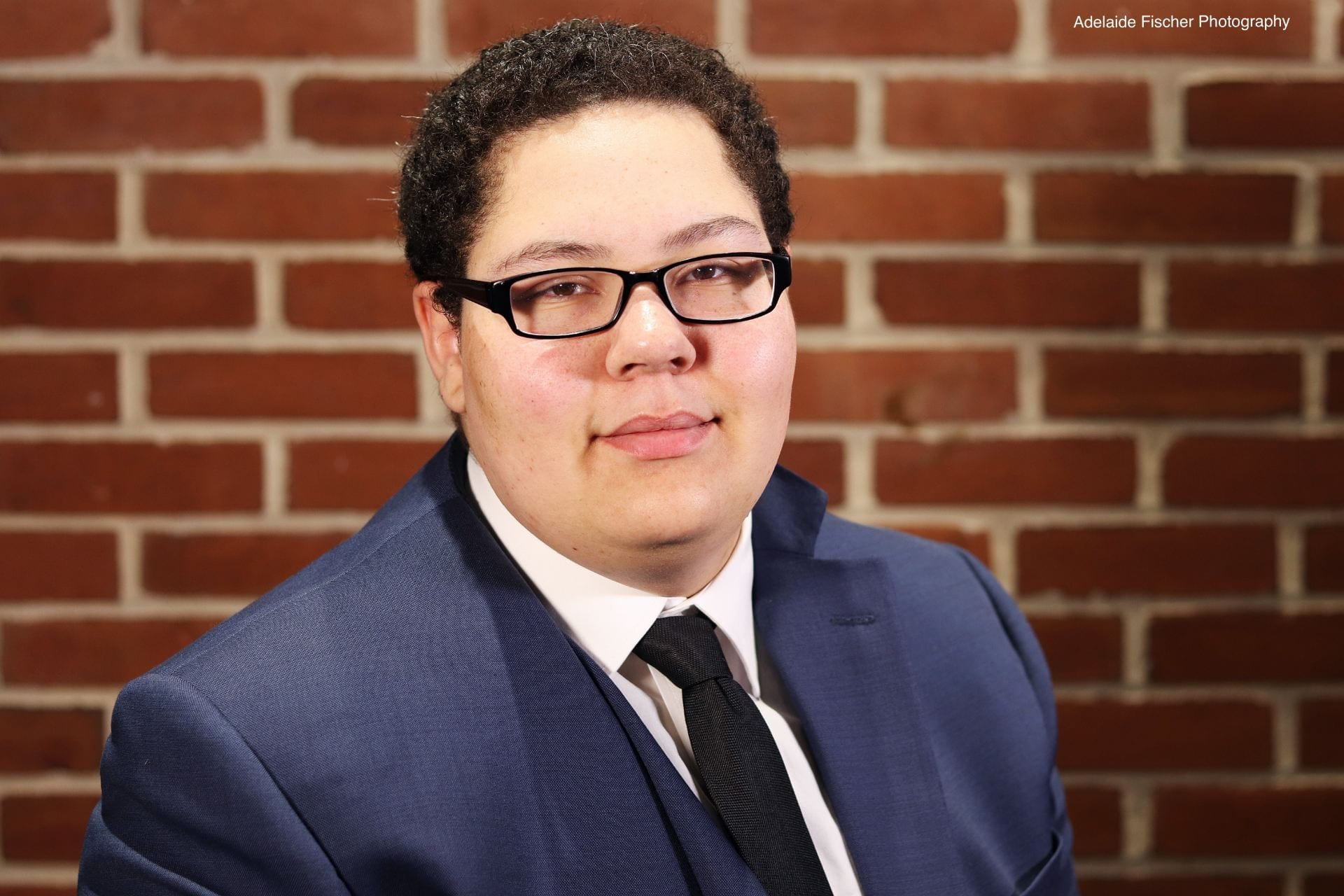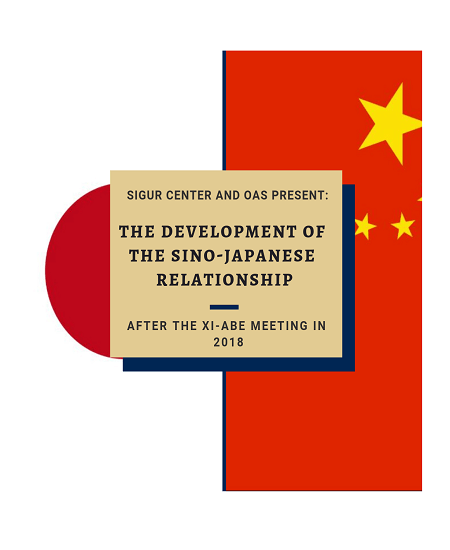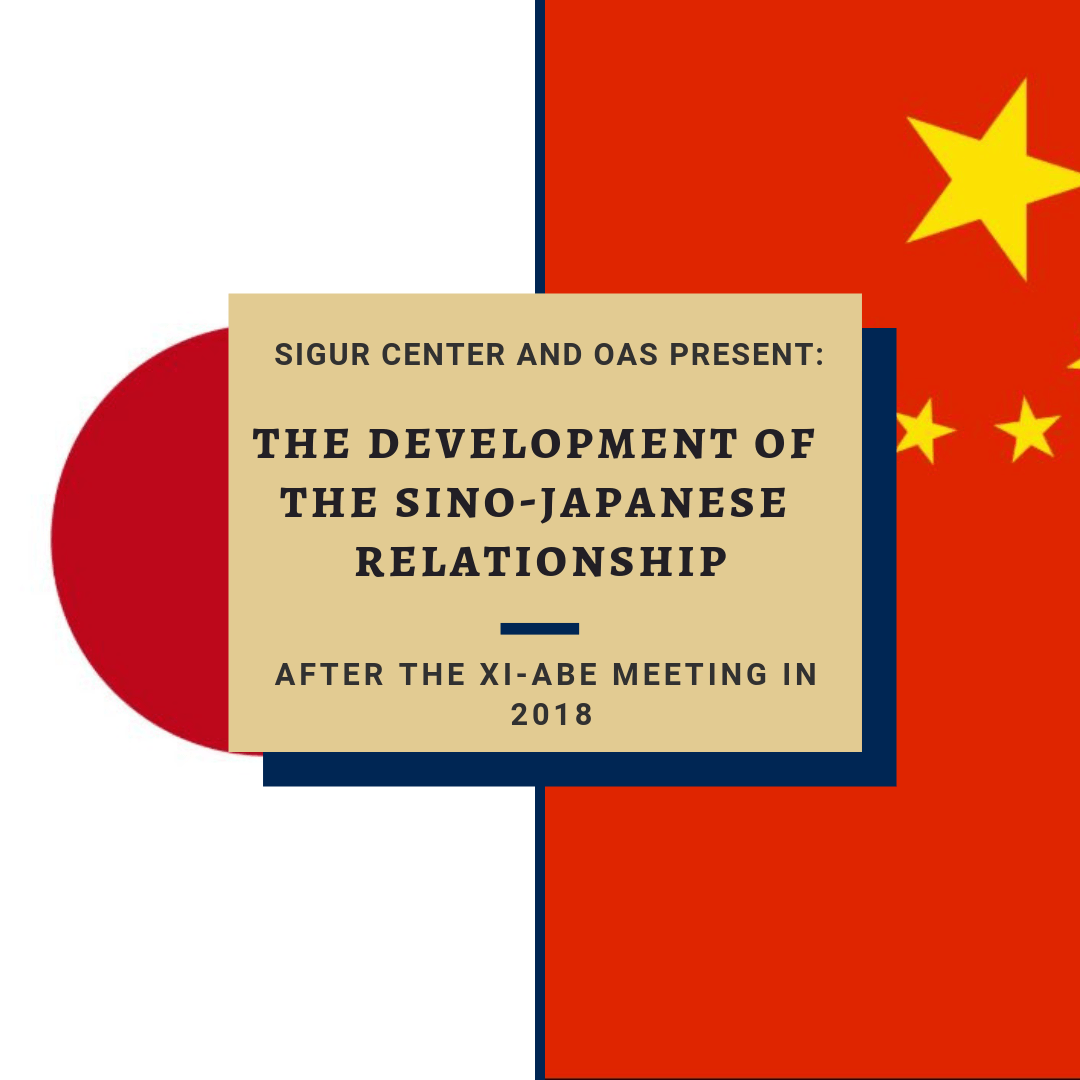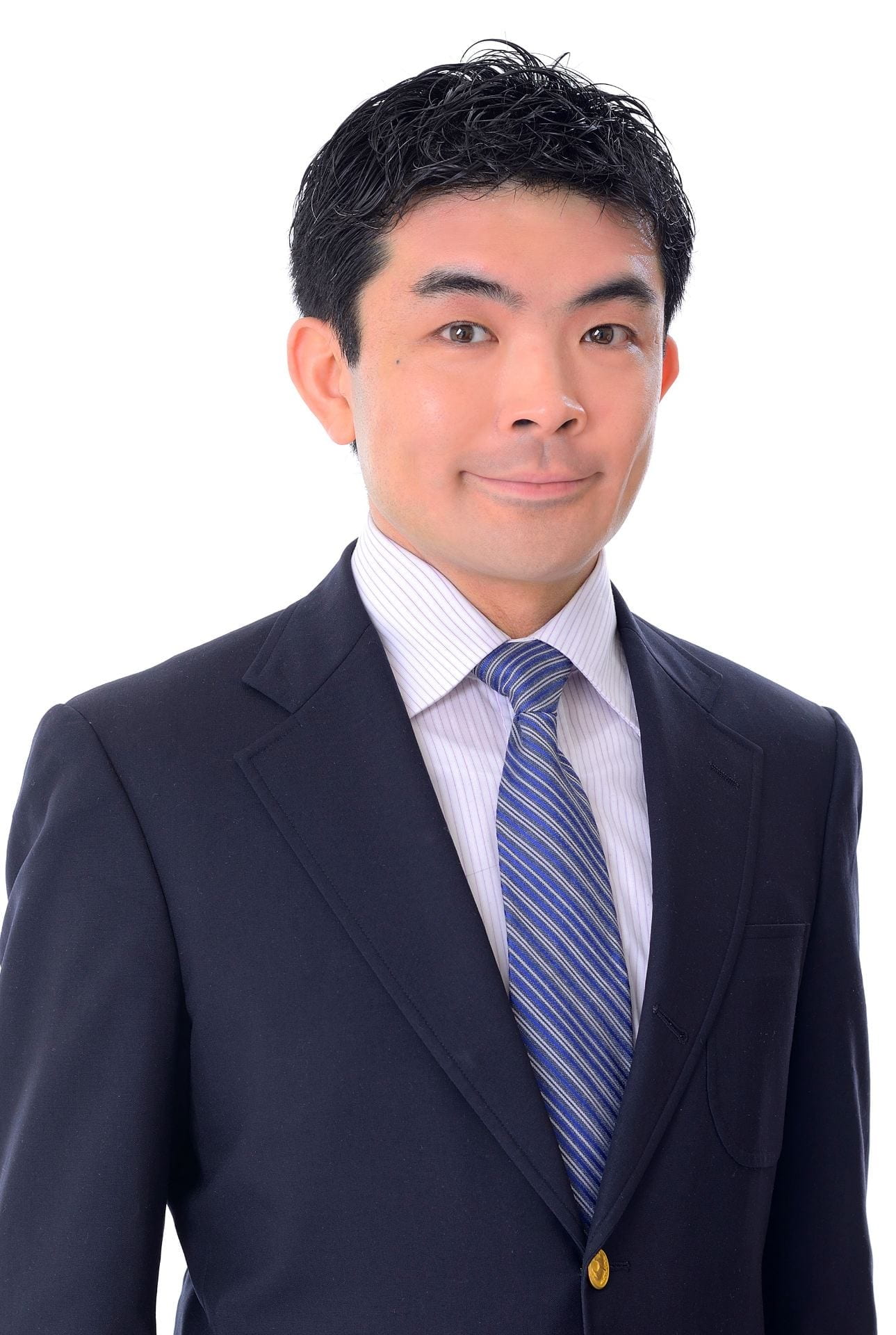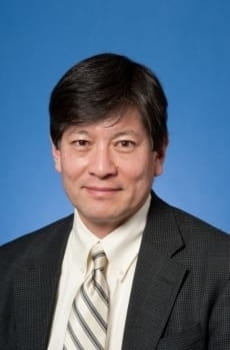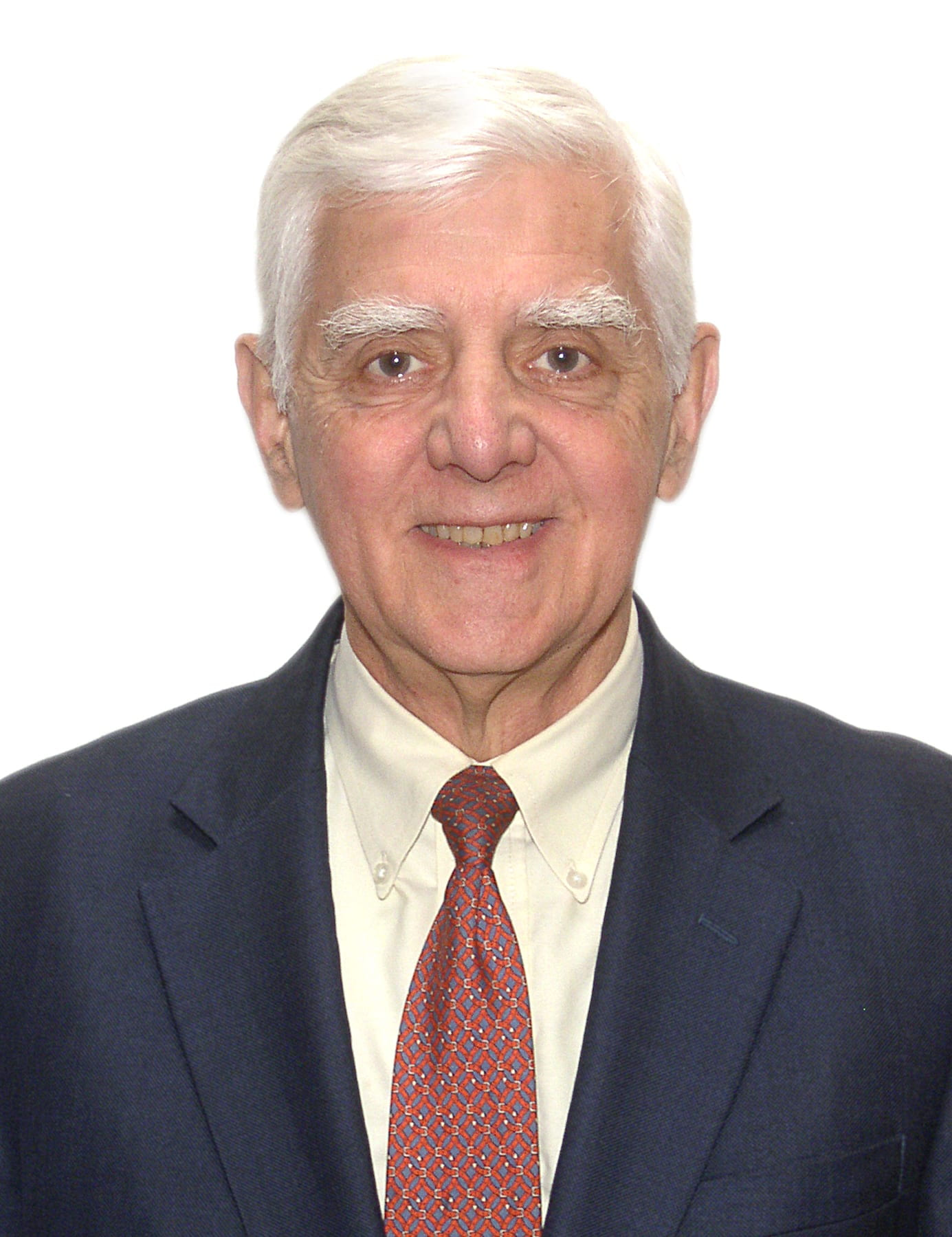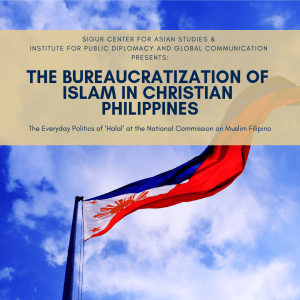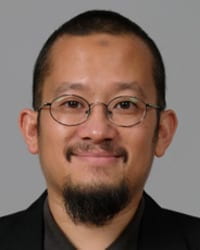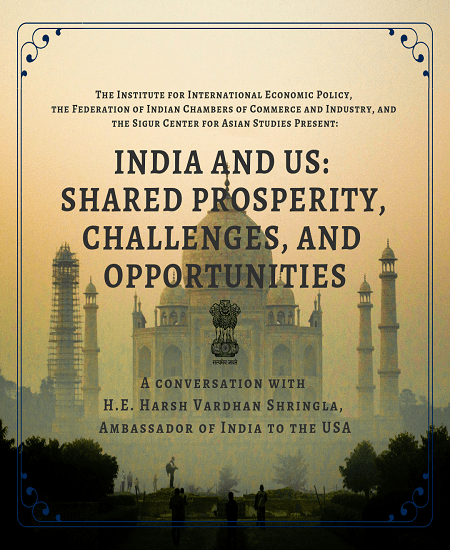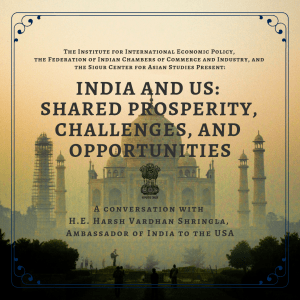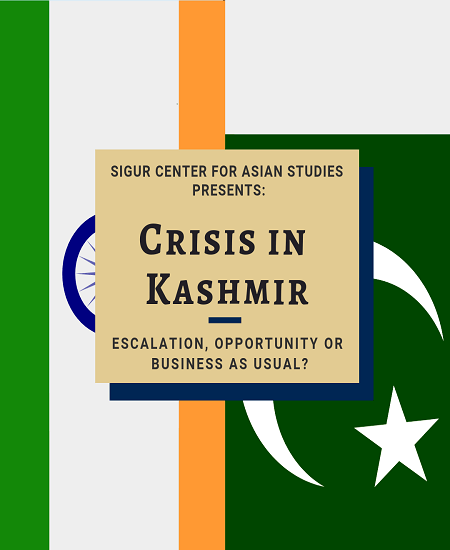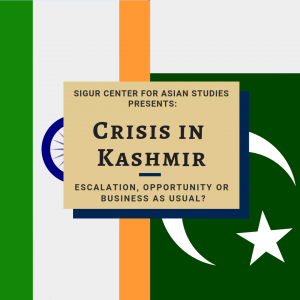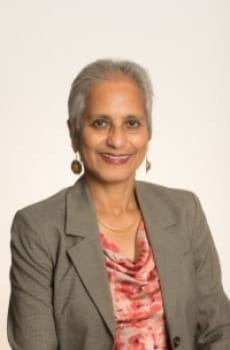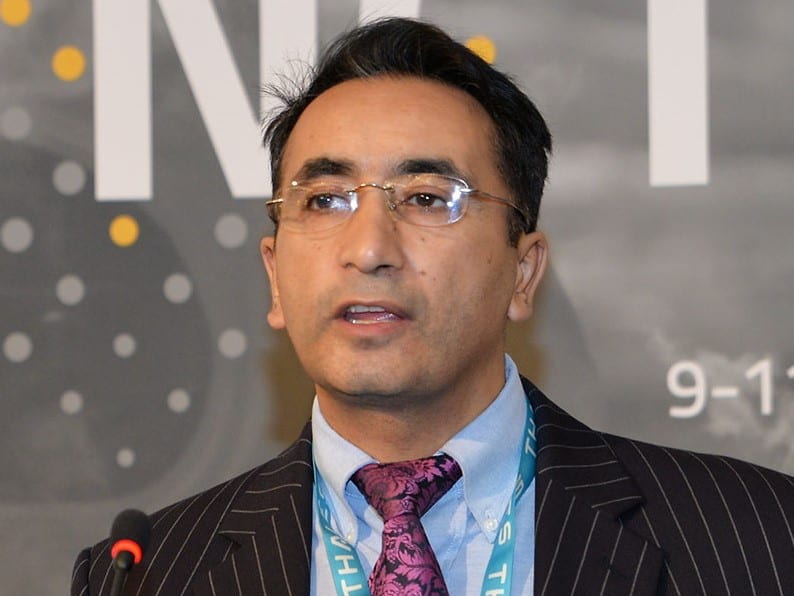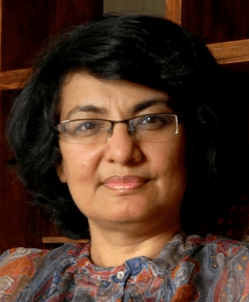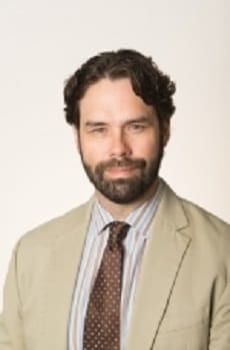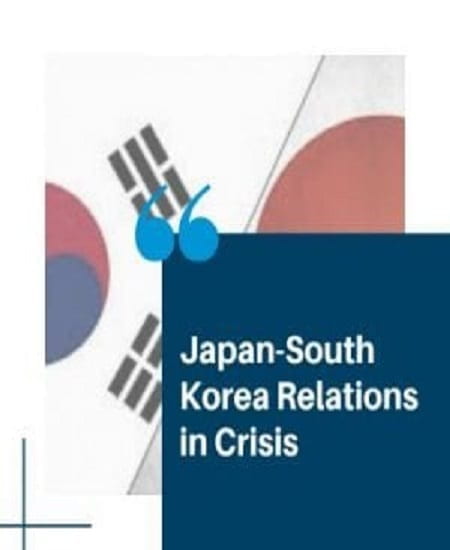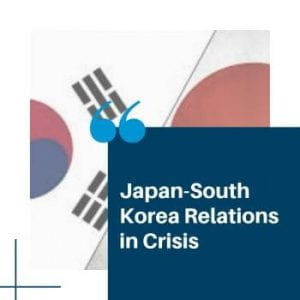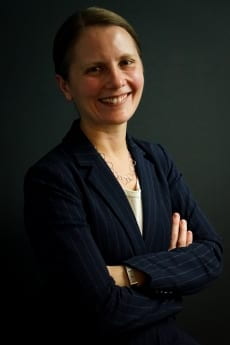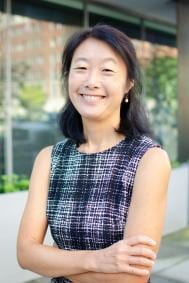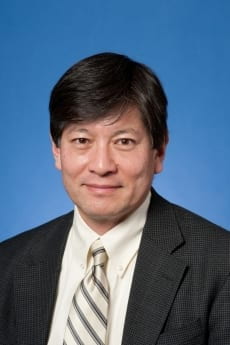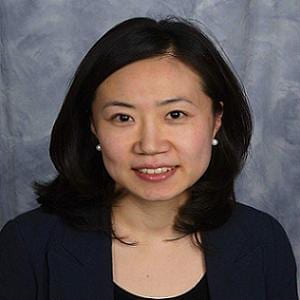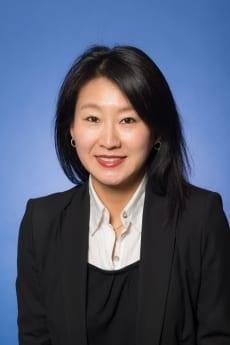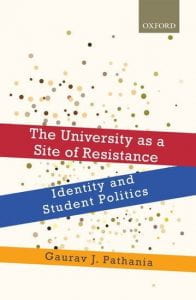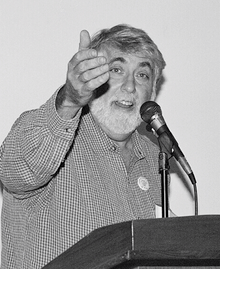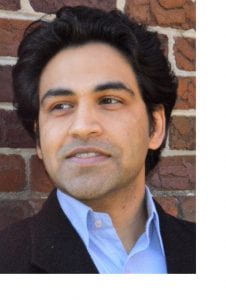Transcription
Jisoo M. Kim:
All right, I think we’ll begin. Good afternoon. My name is Jisoo Kim. I’m the director of the GW Institute for Korean Studies and also Korea Foundation Associate Professor of History, International Affairs, and East Asian Languages and Literatures. Well, thank you all for coming to our Japan-South Korea relations and crises roundtable discussion. This event is co-sponsored by the GW Institute for Korean Studies, the Sigur Center for Asian Studies and the Memory and Reconciliation program at GW.
Jisoo M. Kim:
I’d like to first thank Professor Mochizuki for raising the idea of having this important round table discussion. And so you know, Japan and South Korea share many security and economic interests and yet their relationship has been recently deteriorating and is not getting any better. So one of our missions, actually of the GW Institute for Korean Studies, is to diversify Korea related issues in Washington that’s being dominated by North Korea issues. So I think this is an important opportunity to get to listen to something other than North Korea.
Jisoo M. Kim:
Our panel today will focus on the causes and consequences of the current tensions between Tokyo and Seoul. And they’ll assess the prospects for reconciliation, consider the future of bilateral security cooperation, and discuss the implications for U.S. interests and foreign policy. Now, due to interest of time, because I want to give our audience more time for Q&A and a discussion, I’ll skip going through the details of our speaker’s bio. Please refer to the handout for their accomplishments and I’ll just introduce their title.
Jisoo M. Kim:
So starting with Professor Celeste Arrington, she is the Korea Foundation Assistant Professor of Political Science and International Affairs at GW, and she will give an overview of the court rooms from the last Fall and focus on courts’ indirect effects on the historical justice movement and public memory.
Jisoo M. Kim:
And then moving on, Director Tatsumi who is the Core Director of the East Asia program and Director of the Japan program at the Stimson Center, will focus on the radar lock-on incident and implications for Japan-ROK security cooperation.
Jisoo M. Kim:
And then moving on, Professor Mike Mochizuki, who is a professor of Political Science and International Affairs here at GW, will discuss Japanese public attitudes and domestic politics of Japan’s relations with South Korea.
Jisoo M. Kim:
And then finally but not least, Professor Ji-Young Lee, who holds the C.W. Lim and Korea Foundation of Korean Studies at American University. She will contextualize attentions in broader regional terms. And this round table format will consist of two rounds of shorter remarks by each panelist. Each panelist will get about seven to eight minutes each round and we’ll have our speakers to discuss on the topic first, and then we’ll open up for a more general discussion afterwards.
Jisoo M. Kim:
So now without further ado, I’ll ask Professor Arrington to begin with her remarks.
Celeste Arrington:
Thank you very much and thank you all for coming this afternoon. So as Jisoo just mentioned, I’m going to focus on the recent court rulings as the first of two proximate causes of the current tensions in Japan-South Korea relations.
Celeste Arrington:
My research, which I also published two months ago in a journal article, has focused on the broader, or what you might call indirect or radiating, effects of this type of litigation. And so I’d like to briefly summarize the two rulings that you had in October and November of last year from the South Korean Supreme Court, and then contextualize those in the broader, more than 100 lawsuits that have dealt with alleged historical wrongdoing by the Japanese government or Japanese firms and the more than 25 rulings from higher courts.
Celeste Arrington:
Okay, so in October last year, the South Korean Supreme Court ordered that Nippon steel and Sumitomo Metal should compensate plaintiffs. This particular lawsuit started more than two decades ago in Japan. They did not receive favorable rulings in Japan and then shifted the lawsuits to South Korean courts. Only one of the plaintiffs was still living at the time of the ruling.
Celeste Arrington:
The second similar set of rulings that came out of the South Korean Supreme Court occurred in late November last year, and these were for two batches of plaintiffs. One was a set of plaintiffs who worked in Hiroshima when the U.S. dropped the atomic bomb there and the Supreme Court of South Korea had previously remanded that case to the lower courts in a landmark 2012 ruling.
Celeste Arrington:
However, the ruling last fall was the latest in a series of rulings. These plaintiffs had lost in the Japanese Supreme Court in 2007 and had shifted to filing lawsuits in the Korean courts in 2000, so they also had been fighting this case for more than two decades. The second batch of plaintiffs who received a ruling from the South Korean Supreme Court in November, were Korean women who had worked in a factory in Nagoya, in Japan, and they had first filed their lawsuit in 1998 in Japanese courts and had received a 99 Yen, or about a dollar, in pension repayments in 2009 and had shifted over time their case to Korean courts as well.
Celeste Arrington:
Needless to say, these are extraordinarily complicated and multifaceted legal disputes, as well as they’re trying to come to terms with a very complicated set of historical disputes. It is not my job nor my goal today to try to adjudicate those complicated historical or legal disputes. And so let me just briefly note also on terminology, I recognize that many Japanese sources are moving towards using the term wartime laborers rather than forced labor to refer to these claimants and these types of cases. Because forced labor is a more common term in English I’ll just use that today. It also reflects the plaintiff’s claims that they were underpaid or unpaid for their work in Japanese factories during the war.
Celeste Arrington:
So the October ruling, the first of these three rulings that came out in the fall, contains some new irritants, if you will, to Japan-Korea relations. Already in 2012, the Supreme Court in South Korea had broken important ground with a set of landmark rulings arguing that the 1965 basic treaty between Japan and South Korea did not erase individual’s rights to claim compensation. The Japanese government has disagreed with this position. The 2012 rulings from the Supreme Court also found that the Japanese Supreme Court rulings in 2007 and 2008 ran counter to the South Korean constitution and its principles.
Celeste Arrington:
So the 2012 rulings were significant, and since then more than five South Korean courts have agreed with those rulings. But the 2018 ruling added a new layer of legal reasoning to its ruling and that was that the entire Japanese colonial rule period was illegal. And there were fears that this would kind of open Pandora’s box. In essence, millions of Koreans who lived during the time of Japanese colonial rule from 1910 to 1945 might be able to bring claims against Japanese firms or the Japanese government, especially Japanese firms, in Korean courts.
Celeste Arrington:
Now this fear, that will the flood gates open to litigation for postwar compensation, has already sort of started to happen. Since the 2012 rulings that I mentioned, there are more than 16, by last count, lawsuits in depth in South Korean courts against more than 70 Japanese firms involving more than 1,300 plaintiffs.
Celeste Arrington:
In addition, the South Korean Truth Commission, regarding forced mobilization of workers, has documented that some 300 Japanese firms were involved in using such workers and more than 200,000 Koreans were forced laborers or mobilized workers. These lawsuits are also part of a broader movement for compensation from Japan and from Japanese firms. These include, probably the best known ones are the comfort women, but also Koreans who were abandoned in the Soviet Union after Japan’s defeat, often on Sakhalin Island, they include the Korean atomic bomb victims or survivors, and victims of harsh treatment of leprosy patients and other forms of forced or coerced labor.
Celeste Arrington:
As I mentioned before, there have been more than a hundred lawsuits by such claimants, including at least 25 rulings from top courts, and most of these lawsuits began in Japanese courts and then shifted to U.S. courts and Korean courts and most recently courts in the People’s Republic of China have accepted a lawsuit by Chinese forced laborers.
Celeste Arrington:
Now these legal processes have much broader political and policy implications behind just whether you get a favorable ruling or not. And my research has really focused on these broader political and sociopolitical implications. Since these rulings from last fall, however, we’ve seen an escalation in tensions, or a worsening of relations between Japan and South Korea. And these included Prime Minister Abe of Japan decrying the rulings and telling the firms not to obey the rulings. Meanwhile, South Korean courts had moved towards freezing and seizing the company’s assets if they don’t agree to pay compensation. And in return, the Japanese government has threatened to halt money transfers, deny visas, and impose tariffs on Korean firms.
Celeste Arrington:
On the Korean side, meanwhile, these cases are embroiled in a very politically significant judicial scandal which relates to the previous president who was impeached in 2017, Park Geun-hye. So the Chief Justice of the South Korean Supreme Court Yang Sung-tae, has been accused of delaying rulings in these forced labor lawsuits in exchange for budgets and other political favors for the court system from former president Park Geun-hye.
Celeste Arrington:
In addition, the former foreign minister used to work for the law firm that represented the Japanese firms on the task force to deal with claims related to forced labor and the former Japanese ambassador used to advise one of the firms that’s been ordered to pay compensation most recently. In addition, if you want to make it even more complicated, the current president of South Korea used to work for a firm that represented forced laborers.
Celeste Arrington:
Now, as I mentioned, I’m not going to try to adjudicate these complex and historical legal disputes, but when we come back around to me in a couple minutes, what I’d like to emphasize is that these lawsuits on the one hand show you that litigation is a hollow hope. It’s very difficult to achieve justice for the plaintiffs or to compensation as I mentioned, almost all of the plaintiffs in the one case have died. On the other hand, these lawsuits are part of a global shift towards more historical and transitional justice and with the rise of human rights which are fundamentally built on individual rights, you have seen a shift away from government to government settlements and towards more individual rights claiming. And so this is part of the broader transnational trend.
Celeste Arrington:
And finally I would like to, when we come back to me, discuss how these lawsuits give us lots of examples of how the litigation process itself can actually have a lot of positive effects even though it is one of the most contentious and adversarial parts of the interaction between Japanese and Korean. And with that I’m going to turn it over. So hopefully that was a teaser for my next segment. Thank you.
Yuki Tatsumi:
Thank you Celeste. Good afternoon everyone. Thanks for having me. This is a little bit of a sensitive topic [inaudible 00:13:58] kind of been away game here, but I’ll do my best. So I was asked to address the specifics of the Fire Control Radar Lock-on Incident. However, what I’m going to try to do is, I think I will follow Celeste in the sense that I will not try to adjudicate this case here, because the truth of the matter is that this is, interestingly enough and then I’ll come back to this point toward the end of this round of remarks, cases still remains as very much of a he said, she said.
Yuki Tatsumi:
So rough timeline is that in December 2018 Japanese minister of defense, issued an announcement that its Maritime Self-Defense Forces, a surveillance aircraft, was painted by the fighter control radar by the South Korean Navy destroyer. And the Japan minister of defense also claimed that the particular aircraft that was painted by this radar tried to communicate with the vessel using three different radio frequencies and got no return.
Yuki Tatsumi:
And on the other hand, ROK Navy’s response or ROK Ministry of National Defense response and counter response to that was this particular destroyer was in that water for humanitarian rescue mission and it was actually Japan Maritime Self-Defense Forces P3C that really did the overflight at dangerously low altitude. And basically, they blamed each other for the risky behavior of each other’s Navy assets. That was followed by both sides releasing video footage that both ministry recorded and they tried to resolve this by meeting at the working level a couple of times, but then as of 21st of January this year, both sides have not met, at least in a publicly announced way, to discuss this matter further.
Yuki Tatsumi:
So Japan’s tabling its case and ROK tabling its case and the case kind of stayed that way. So if you go to both the Japanese Ministry of Defense website and then the Korean Ministry of National Defense website, you can read each side’s claim in terms of why their stance is justified. Rather than try to adjudicate this case, what I would like to highlight is how this tension escalated into a public, almost a PR, warfare between Japan and ROK on their defense establishment and their failure to resolve this quietly and their continuing failure to resolve this issue to this day.
Yuki Tatsumi:
And this is actually, I would argue, that it’s a symptom of the current dysfunctional state of the Japan-ROK relations and it actually shows how grave it is that the level of disconnect between the two countries has become. Because as we all know, political relationship between the two governments can be tenuous. Both the countries see some positive periods, but then both governments also have seen negative periods.
Yuki Tatsumi:
But throughout those political upwards and downwards of the relationship between the two countries, there are two underlying sectors of the society or the country that really supported this bilateral relationship at the foundational level. One is business community and the other one was defense. As a solicitor explained to us in detail, the court ruling on the forced labor issue and the following order for freezing assets and seizing assets of the Japanese corporation, really put the cold water onto one of those legs, which is business-to-business relationship. And now the failure of both sides to resolve this Fire Control Radar Lock-on Incident really puts the question, perhaps now that the other side of the leg, which is defense relations begin to be negatively affected by the current political tensions between the two governments.
Yuki Tatsumi:
And if you think about where the shared security interest between the two countries, it actually is quite worrisome that these foundational relationships seem to have been damaged. And I still don’t know to what degree it is irreparable. But I would just highlight that this particular incident does not demonstrate the cause of the disconnect, but rather really shows the symptom and the gravity and the degree of the dysfunctionality of the two governments at this point. So I’ll wrap it up on this round on that and then I’ll pass it on to Mike.
Mike M. Mochizuki:
Thank you. Let me just first say that over the last 30 years, as a scholar and analyst of international politics in Northeast Asia and Japanese foreign policy, and watching the problems and the fluctuations in Japan-South Korea relations, has been one of the most painful professional aspects of my career. And so I’ve struggled over the last couple of decades to try to understand what’s at the root of this. And the conclusion that I’ve come to is that it really has to do with the domestic politics of both countries. And although both countries are democracies, they are very different kinds of democracies. But I would like to emphasize that one of the reasons why I feel such pain about this, is that I, don’t for a moment, think that the peoples of Japan and the peoples of South Korea are locked in a permanent state of historical animosity.
Mike M. Mochizuki:
And, in fact, public opinion polls suggest otherwise. So you would think because of the South Korean narrative that focuses on the victimization as a result of Japanese colonial policies, you would think that South Koreans would harbor across-the-board negative views towards Japan. But polling data suggests that over the last decade or so, there has been a gradual improvement in the perspective of South Koreans towards Japan. And so, one organization that you may know of, Genron NPO, has been taking surveys every year since 2012. Unfortunately, we don’t have data before then. But over the last five years, the percentage of South Koreans who have a bad impression of Japanese have declined from 76% to 50% and then there has been an increase from 12% to about 28% in the last year of those who hold positive feelings towards Japan. Now still, you know, there’s a lot more that South Korean views of Japan need to improve, but it shows that they’re not necessarily locked in this animosity.
Mike M. Mochizuki:
The other, and this is what I really want to focus on, is the fluctuations in the Japanese side. And what is remarkable about the last few months is, according to one media organization, 77% of the Japanese do not trust South Korea. But what’s painful about this is that ever since the 1998 Obuchi-Kim summit and the joint declaration, there has been a gradual improvement in the affinity of Japanese towards South Koreans.
Mike M. Mochizuki:
And then after Prime Minister Koizumi retired and the visits to Yasukuni Shrine stopped for awhile, then over 60% of the Japanese began to hold very favorable or somewhat favorable views towards South Korea. This is compared to the late 1970s and early 1980s when fewer Japanese had an affinity towards Korea than to China. Now what does this show? Well, it shows that it’s not just kind of the social and cultural exchanges and the importance of the so-called Korea Wave, and I think that that has really fostered a sense of affinity, but it’s also the hard work that political leaders of both countries did in order to try to deescalate and address some of the historical questions.
Mike M. Mochizuki:
And where there has been a precipitous drop in Japanese affinity towards South Korea took place in 2012 after the visit of President Lee to Dokdo/Takeshima, but also when he stated that the Japanese emperor needed to apologize to Koreans who worked for independence.
Mike M. Mochizuki:
Now from the point of view of South Koreans, of course, this is maybe widely accepted, but I think from the Japanese point of view, there is a sense that despite the cultural and social affinity that they may feel towards Korea, it is the persistent criticism on historical issues that leads to the negative impression. But kind of as a teaser, I would say that there is also responsibility on the Japanese side. And I would say that it’s because the dominant narrative about Japan’s colonial past vis-à-vis Korea has been a conservative narrative, which diverges fundamentally from the narrative that has emerged in South Korea in the wake of democratization. And unless that narrative in Japan changes, I don’t think that this issue will be resolved.
Mike M. Mochizuki:
Now just to suggest to that that narrative is not permanent, is that there are some in the Japanese political class that have a different viewpoint and it’s during those times that relations between the two countries improved. So this was when Prime Minister Hosokawa gave a detailed, spontaneous apology to the president of South Korea. That’s when Prime Minister Hatoyama said that the DPJ government is powerful enough, strong enough to face history squarely. It’s when Prime Minister Kaun at the time of a potentially contentious year, the hundredth anniversary of Japan’s annexation of Korea, that he issued a very unequivocal apology towards South Korea. So you do have this alternative narrative, but unfortunately for reasons of domestic politics, that narrative is sublimated and the dominant conservative narrative, which is diametrically opposed to the progressive narrative of South Korea, is dominant in Japan, and that, I think, is at the root of the problem.
Speaker 1:
Thank you so much to the organizers and everyone for being here. I can think up probably three main drivers for South Korea-Japan relations that may explain why the two countries are experiencing this high level of tension today more than ever.
Speaker 1:
One is South Korea and Japan’s strategic interest towards China do not converge. Probably may be fair to say that, comparatively speaking, Japan seems to have a clearer idea as to how to deal with China, whereas South Korea is much more hesitant in spelling out what its South China policy should be.
Speaker 1:
Two, in the past it has been North Korea’s propagation and the policy coordination that brought the two countries together in the midst of all these ups and downs in the last probably 20 years or so. But that link actually has gotten much weaker.
Speaker 1:
Three, history issues and domestic politics do not go away. But more than ever, I think that the collapse of earlier agreements on history issues actually has increased the level of mistrust on the part of Japan for South Korea and these failures actually make it more difficult politically to pursue anything new.
Speaker 1:
So today, where the two countries are now, in a sense, is a product of past efforts that ended in failure that fuels a lot of frustrations. From South Korea’s perspective, you have an administration whose priority is on inter-Korean reconciliation. If you think about this policy and its objectives, it actually has an implication for US-South Korea Alliance relationship, but also South Korea’s relations with Japan.
Speaker 1:
So let me actually go into each of these points briefly before talking about some of the consequences that I could on the people.
Speaker 1:
The first on the rise of China question. As long as the United States… If South Korea or the two countries wanting to develop stronger security partnership, this is the issue they could have actually developed further strengthening of their relationship. But it actually has not happened.
Speaker 1:
My understanding is that when Prime Minister Abe, he initially was very interested in working together with South Korea than the Pak Geun-hye administration. But it is no longer the case. If you think about the Obama administration’s Pivot to Asia policy, it in fact rested on this idea or the expectation of strengthening that security partnership in the far part type relationship between Tokyo and Seoul. But we all know that did not actually go very well. When I think about this South Korea-Japan relations and these expectations from the policymakers that expect Seoul and Tokyo should get along because they are democracies and they have a rise in China and threats from North Korea. But I think it is important that we do not assume that South Korea’s strategic hold towards a rising China is in fact naturally converged with those of Japan.
Speaker 1:
I actually happened to study the diplomatic history of the three countries: China, Korea, and Japan. I’m not necessarily making any direct implication or application, but they actually have been neighbors for probably 2000 years and China actually has always been, part of the 19th century, the sole great power. Not once Japan and Korea came together to form an alliance even when they both felt threatened by… I mean there are a lot of reasons, but I thought it was interesting that… I think there’s something about geography where Korea has to worry a lot more about China than Japan even in this age of advanced technologies. South Korea is actually more vulnerable to Japan if things seem to go wrong in terms of their economic relations with China… So in that sense…
Speaker 1:
Strategically, I think in the minds of any South Korean leader, they understand that if they’re thinking about the future of Korean Peninsula towards unification, they know that they have to be at least in good terms with Beijing in order to be able to proceed with unification. So what this means is that, compared to Japan…I am not advocating South Korean position. I was asked to be talking a little more about South Korea, thus I am talking about South Korea. I actually think it’s much more difficult for South Korea to join any correlation against Beijing, even if it’s led by the United States. I think the South Korea’s initial hesitation towards the US missile defense system, the deployment of THAAD in South Korea actually is a case in point. Second, on the North Korea question, we all know that this is not the first time that South Korea and Japan have been fighting and they’re not getting along.
Speaker 1:
I see some pattern in the bilateral relations. When there is a new leader elected in office, there’s going to be some kind of promise towards a future and good relations and there’s going to be some kind of deadline related to history issue. The publication of Japan’s defense white paper where the book describes Dokdo/Takeshima Island as Japanese territory then South Koreans get upset and things start to go downhill. There’s the deadline for [inaudible 00:6:30] and comfort women issue. There are many deadlines that they actually had been going downhill, but if there’s one issue that actually kept their relations at certain level is their common united approach towards North Korea, the strong deterrence.
Speaker 1:
These especially under the conservative government in South Korea, say for example, the Lee Myung-bak government, after the 2010 Cheonan and Yeonpyeong incident, Japan immediately stood to support South Korean position and that actually mattered. But Trump’s deterrence position in the context of US, Japan, South Korea deterrence; that is actually very different today, right? US presidents held two summit meetings with North Korean leader and South Korean’s president’s priority is inter-Korean relations. So you actually have a lot more moving parts, meaning that the link that used to bring together the two is actually gone. Third, the history issue. I can talk about this a little more at a later point, but it’s no secret that history issue is linked to domestic politics. But I think that the problem is that for the Moon Jae-in government in South Korea, there’s very little political incentive for the current administration to work towards improving relations with Japan for domestic political reasons. I was told that I am over time, so I will stop here. Thank you.
Speaker 2:
All right. Thank you. So a lot of food for thought. I’m going to delve back into the traditional realm and try to relate it back to Ji-Young’s last comment about Moon Jae-in administrations incentive structure. So as I mentioned, I recently published sort of a meta-study of the last two to three decades of litigation against Japanese firms or the Japanese government in Japanese, US, and South Korean courts and tried to take stock. Most these cases have resulted in rulings that were unfavorable to plaintiffs. But what have been the broader implications or consequences of this wave of litigation, which has diversified. It’s not just about damages and tort claims or state compensation claims, but also now includes defamation, lawsuits, and trying to recoup pension payments or unpaid wages. In the law and society and literature here in the U.S., there’s a broad set of studies that look at the indirect effects of the litigation process.
Speaker 2:
So de-center the courts, don’t just focus on what the courts say because courts are polyvocal. They send many different messages and how those messages are received and interpreted affects the ultimate impact that they have on politics and on society. Drawing on this literature, I’ve come up with a very long list of 20 different mechanisms that you see at work in these lawsuits. I will not talk to you about all of them, but let me highlight three. So the first is that the litigation process has led to cognitive shifts in Korean survivors of the colonial period. And that is that they’re increasingly aware of their rights and different ways that the options that they have for trying to reclaim their rights or try to seek justice. This has led to a growing sense of political efficacy among survivors of that time period.
Speaker 2:
It’s been supported by concentric circles of lawyers who have formed dense networks across the different types of alleged victims of Japanese alleged wrongdoing. Then around those lawyers are also a different support groups and these support groups are in Korea as well as in Japan. And here is where you see a different picture from the bottom up than what Mike was just describing about a dominant conservative historical narrative in Japan. This is also where you see lots of cross national court cooperation. So the bar associations of both countries have hosted commissions to try to deal with the history issue. There are scholarly commissions and they’re just ordinary scholars or ordinary concerned Japanese and Korean citizens who have formed lots of local networks to try to uncover documentation about what happened to try to support the plaintiffs. So this includes things like collecting money to book hotels or rent buses to drive the plaintiffs from the airport to the courtrooms or to show up in court and show the support for the plaintiffs and Japanese courts, for example.
Speaker 2:
These networks of people have contributed to the cognitive shift and helped build a dense network of movement infrastructure that has helped sustain this wave of lawsuits as diverse as they are.
Speaker 2:
The second mechanism that I want to highlight here is that this wave of litigation has transformed public perceptions of the past. This has occurred in a variety of different ways. So on the one hand, the litigation process, especially when the defendants deny liability, this is really good media story. It’s very dramatic. It’s very tense. It highlights the drama of the dispute and can lead to worsening mutual perceptions, as Mike was describing in the polling. At the same time, the media coverage has also highlighted the personal stories of the plaintiffs. For many of them, they’re speaking out for the first time. For some of them, they have visible scars that they could show in public seminars across Japan. That is humanizing the issue of this dark past. Media likes drama, but they also like human stories, good human interest stories. So this is another dimension that is increasing media coverage of these lawsuits.
Speaker 2:
In addition, the court process itself, there’s no discovery per se like in the US and Japanese or Korean courts, but the broader movements and in the court process, a number of documents or archives have been revealed that have contributed to information about what happened in the past.
Speaker 2:
This is a little bit of a stretch of a comparison, but you might take a look at the US tobacco lawsuits. So I happened to be also researching tobacco right now, so this is why I’m going to be talking about this. I mean, there were more than 700 lawsuits against tobacco companies here in the US and one favorable ruling. But nevertheless, these lawsuits dramatically shifted public perception of smoking and of the tobacco companies over time. There’s a rich literature on this shift. Here the information revealed in a court process, the settlements, the plaintiffs and their lawyers concerted strategic effort to generate publicity and to reveal the ills of smoking, for example, can be compared to the really deliberate movement effort to portray an alternative narrative about what happened in the past.
Speaker 2:
So as I mentioned courts are polyvocal and as these movements built and courts gave them standing or recognize the plaintiff standing to bring these cases to courts, they became sources for media coverage and have gradually helped shift public perceptions, not just in Japan and Korea, but if you’re looking at New York Times editorials, for example, you also see a shift in the perception of this past.
Speaker 2:
Then finally the… Well, let me just mention one more thing here before I go into the final thing. That is that these lawsuits have provided political cover for Korean National Assembly members to tackle issues that used to be too hot, too controversial to tackle. That includes setting up a truth commission about forced labor in 2004 and passing legislation to provide financial assistance to force laborers in 2007. Okay, so these issues have gotten on the political agenda in South Korea in a way that they might’ve been too sensitive previously, thanks to the court cases.
Speaker 2:
Then finally here are these highly adversarial court disputes have been sites of cross-national and interpersonal reconciliation at the grassroots level. Here, many of the attorneys from Japan, if you have a court case in Japan, you have to have Japanese attorneys, have also personally apologized for their country’s wrongdoing in the past.
Speaker 2:
So as you might guess, many of them are of a leftist leaning, not all of them by any stretch of the imagination. In addition, hundreds of Japanese supporters, if not thousands, have embodied an alternative narrative to the one that Mike was describing, this conservative dominant narrative.
Speaker 2:
In the polls that Mike cited, some 80% of South Koreans do not trust Prime Minister Abe. Okay, so this is a different narrative from that. The plaintiffs, when they interact with Japanese lawyers and with Japanese supporters, experience that there is a diversity of views in Japan on the question of what happened in the past. The friendships that they form as well as the shared new identity as part of a group working towards a shared goal, so social psychologists will tell you that these will help to sustain activism and in addition, this provides a forum, I guess, for interpersonal reconciliation that’s not occurring at the government-to-government level.
Yuki Tatsumi:
Great. Thank you. Picking up on where I left off and I think I would like to pick up on Ji-Young’s excellent point about the North Korea has been the kind of link between the Japan and ROK. But then not the two countries but including the US and when it comes to its defense relations. This oftentimes is not very obvious, but if something does go wrong on Korean peninsula, defense of South Korea is not sustainable without support coming through the US forces facilities in Japan and the Japan self-defense forces providing assistance to US forces to facilitate those movements. There was a fundamental understanding amongst the defense community, so of all three countries on that and I think that really helped to kind of hold up the relationship even at times where political tensions are quite high in the past.
Yuki Tatsumi:
But as Ji-Young mentioned, when the different dynamic starts rolling surrounding North Korea, denuclearization of North Korea, and the future of the Korean peninsula and especially when we have a US president who talks about if the host country doesn’t pay 100% cost plus 50, he would seriously consider bringing everybody home and including this forces in Korea. This kind of puts a very different calculation in the minds of the South Korean leaders. But then also I would argue it also put a slightly different calculation in Japanese leaders’ view. They’re much more conscious about their own national interests as opposed to their shared interests. That could lead to the change in the traditional pattern that we’ve seen about a stabilizing effect of the defense relations that has had in the past. Another point that I would like to pick up, because both Mike and Ji-Young highlighted and I do agree, is this really intricate link between the historical issues between two countries and the domestic politics of the two countries.
Yuki Tatsumi:
I’m sure Mike will probably elaborate into this or Ji-Young would. But I can point to two factors that kind of causing this divergence of narratives between the two countries when it comes to history.
Yuki Tatsumi:
One is the collapse of the left in Japan after the Cold War. Up until that point and I would say, Prime Minister Obuchi and the political leaders of that generation are still very much of the product of that era where they really were competing ideological narratives about Japan’s past, present, and future. But since the end of the Cold War that left collapsed in every sense of the word. So that gradually shifted the political, I guess, mass within Japanese politics gradually toward the right. I would still argue Prime Minister Abe and perhaps some of his supporters, may be a little bit more further right than the rest of his colleagues in his own party. But nonetheless, this gradual shift of this political mass consensus toward the conservative realm without any competing ideological narratives about Japan’s own past, present, and future, I think, is one factor that I could point to. But then another point of reference that I would always look at is democratization of South Korea.
Yuki Tatsumi:
So as I talked about this, a gradual shift from the government-to-government settlement to more of a personal levels resolution of this historical and other grievances. Japan’s traditional position, which still remains the same today, is that all the historical issues during the colonial era, during the wartime vis-à-vis Republic of Korea, has been addressed with that Basic Agreement. But the Basic Agreement was signed by a military dictatorship in South Korea. So when Seoul began to go through this amazing democratization, a lot of questions were start being asked about the political judgment and a policy decisions from that era. Then I think that definitely contributes to the emergence of a very vibrant, different narratives in South Korea, when on the other side of the sea of Japan, political consensus in Japan in a narrative consensus of Japan is past, present and future is gradually shifting toward right, without anything pulling back toward the left side of the ideology. So I would just stop at that.
Speaker 4:
Great. Well thanks Yuki for that. Because I essentially agree with your analysis, but I would probably offer a friendly amendment. It’s not just the collapse of the left in the wake of the Cold War. In fact, in a sense the reorganization or reconfiguration of Japanese party politics in my mind opened up a real promise of a breakthrough. So if one thinks about developments like the Murayama statement, the way Prime Minister Hatoyama, tried to promote an East Asian community. The way Prime Minister Khan addressed, frontally, the issue of Japan’s colonial past, the collapse of the old left and the rise of what I would see as a center-left of force opened up a possibility, an opportunity to break out of the problems of the old narrative. So, my friendly amendment would be, it’s not just the collapse of the old left, but the failure and the collapse of the center left and the disintegration and the failure of the DPJ government.
Speaker 4:
I mean the first two years of the DPJ government were very positive. But then in the [Noula 00:24:13] administration, and especially in the wake of president Lee’s visit to talk to Dokdo/Takeshima and to call for an imperial apology. I mean, that changed things. The other is, I would say, the weakening of the liberal wing of the liberal democratic party. So those things also contributed to that. Now, of course there are certain exceptions. For example, prime minister Nakasone after becoming prime minister, I think one of his first visits was, overseas visits, was Seoul and he fired his education minister and apologized for the inflammatory view of history that education minister… I’m trying to remember his name. [Fujio 00:25:06]-
Yuki Tatsumi:
[Fujio Kamari 00:00:25:07]?
Speaker 4:
Yeah.
Yuki Tatsumi:
[Fujio Ka 00:25:10] ?
Speaker 4:
Yeah. Well not [Fujio Ka 00:25:12], but… I’m showing my age… But and apologized. The reason for this is that he had a clear strategic sense and about the importance of Japan-South Korean relations.
Speaker 4:
It’s also in the context of a security environment that forced or compelled Nakasone’s son to move in that direction. Now unfortunately, I would say under the Abe administration, he does have a good strategic sense in terms of strengthening the US-Japan Alliance and putting forth the free and open Indo-Pacific vision onto stabilizing the relationship with China. Those are all great things that I applaud. But on Korea, I think he is non-strategic. Some people have talked about Japan has a policy of benign neglect. But I was reminded by a good Japanese friend today that it’s not a benign neglect. It’s hostile neglect. That’s, I think, one of the problems. But also fundamental is the divergence in the nature of democracies between South Korea and Japan.
Speaker 4:
I mean when we talk about the democratic peace theory, we seem to kind of dump all the democracies in kind of one basket. But there’s a lot of variation in terms of democratic development and democratic institutions. I would say, in addition to the big difference, which is in South Korea politics are very personalized, the parties are not well institutionalized. Then there has been changes between conservatives and progressives and it’s not the history issue, but it’s the sense of social injustice vis-à-vis the old authoritarian regime that gets linked up to the history issue that becomes such a problem issue in Japan-South Korean relations. Whereas, in the Japanese side, it’s basically, except for a few short episodes, the predominance of the liberal democratic party. But beyond that, I think it’s the history of democratic development. In South Korea, you could say that democracy was won by civil society and the anti-authoritarian movement.
Speaker 4:
So it was something that was seized and from there they wanted to right the wrongs domestically. Whereas in Japan, although there were of course many pro-democratic movements in its history, at the end of the day, it was democracy from above. So given that I think there is a fundamentally different political culture in the context of democracy. Whereas in Korea, the fundamental kind of value that’s drives democratic politics is the search quest for social justice. Whereas in the Japanese one, it’s the kind of the emphasis on procedural democracy and the maintenance of political order. I think that if there is a kind of a domestic structural reason beyond the history narratives of why these things are processed in such a way that is hard for the other country to understand what’s going on is because of that divergence.
Speaker 4:
Now finally, I don’t want to adjudicate this, but I think we have a responsibility also to think about how we can address this problem because if this continues for a long time then they could really have a permanent effect.
Speaker 4:
I remember reading in Asahi Shimbun in early December a report that a former Korean ambassador to Japan had a proposal which was to basically create a foundation that would consist of the South Korean government, the Japanese firms implicated in the abuse of conscripted labors, but also the Korean companies that benefited from the 1965 settlement. I thought this is a great idea. But then in January, I think a spokesperson for the Blue House said this is a ridiculous idea. Which these we do think that Ji-Young is right, that maybe the Blue House really does not want to deal with this issue. So I think one possibility of a way out might be to build on that, what I thought was a wise proposal, and maybe what’s lacking is the role of the Japanese government. I understand the Japanese government may not want to get involved in providing payments to conscripted laborers because of 1965, but the Abe statement of August 14, 2015 says, he doesn’t want future generations to keep apologizing. But then he says there’s an obligation, a responsibility to pass on to the future generation and understanding of history.
Speaker 4:
So one way that the Japanese government could participate in such a fund is to contribute to an institution that would encourage the education and research about the colonial past. I think that that’s one plausible way. I know right now given the tense relationship between Tokyo and Seoul, it may be hard, but that’s one possibility. Now finally, some might say, “Well, Japan has dealt with the issues of World War II. This is about Japan’s colonial past”. Other countries haven’t done very much about that. But I would say that we are now coming to a moment where other countries, European countries, whether it’s recently France and the president of France, kind of acknowledging the torture in Algeria or the debate about how the British deal with some of the atrocities committed in India. That the time is coming to address the colonial past, not just the atrocities during World War II.
Ji-Young Lee:
Thank you. Building on our co-panelist’s comments. I would like to talk a little bit about this question of why is it that South Korea is so, I don’t know if you – let’s put it in a diplomatic term – feel very strongly about these historical issues and about Japan. And before I actually get to do that, I wanted to point out, when I pressed them for a price, and Bob called for an apology from the emperor, even the South Korean media, I believe it was editorial from Chosun Ilbo, they usually follow the dominant conservative narrative and Chosun Ilbo even thought that the president, he went too far. Just to put it out there. When we think about the South Korean position on these various historical issues, we tend to think of this in terms of South Korean identity that led them to behave the way that they do.
Ji-Young Lee:
But then in terms of consequences of these disputes that we are witnessing today, I am concerned about actually what Mike was talking about — this narrative and also the public opinion. I’m worried that the hardening of image of the other in the minds of many public peoples of South Korea and Japan. So I have a paper that I co-authored with one of our PhD students basically trying to understand the link between these historical character issues and South Korean identity. Particularly with reference to Dokdo/Takeshima Island issue. So we looked at education. We looked at all the high school history textbooks, about seven or eight, that are being used in South Korea. And then we also looked at civil society NGO groups. And then we also looked at the media recording about the bilateral relations. And what we found out is that over the years, in recent years, typically we think of South Korean identity, being responsible for South Korean reaction to Japan, but what has happened in terms of the disputes.
Ji-Young Lee:
What we found out is that, in fact, these disputes and how these actors respond to these disputes are actually reproducing South Korean identity linking, say Dokdo/Takeshima Island issue to South Korean sense of patriotism. This may not actually be new, but when we looked at how it has become much more prevalent to see everyday symbols in South Korea. So you have a t-shirt that says “I love Dokto,” and then of course the song “Dokto is Our Land” is legendary. Any South Korean who grew up in South Korea will hear that. If you actually take a look at the lyrics, it’s like phew… those are not the things that’s going to go on an academic publication.
Ji-Young Lee:
So just briefly, when we look at high school history textbooks, in fact, Dokdo/Takeshima was the one that received most attention of all the historical and territorial issues. And then the message that comes from the narrative analysis is that they will talk about this fisherman in Chosun Dynasty that went to protest against the Japanese authorities about the Japanese ship…What was the exact story? …violating Korean sovereignty. And basically the message that the high school students are getting is that you have to protest when infringe upon sovereignty is going to take place. And then, some of the keywords and narratives that come out of this historical textbooks are actually quite similar to what we will hear in media. And second, when we analyze the media, the dominant framing that their reports on Japan is based on is that conflict framing. Basically when Japan does wonderful things, it doesn’t really get a lot of attention in news media, but when someone has to say some provocative things about historical issues. Someone was likening the comfort woman issues to college cafeteria. Things like that.
Ji-Young Lee:
Those negative stories that are very provocative receives most attention. And these are actually real documented in media studies as well. And then civil society, there are at least five major NGOs that are dedicated to promote South Korean position amongst the South Korean public, so the message is almost becoming like if you are a good South Korean, your loyalty to the state comes from your support for the South Korean position on this Dokdo/Takeshima Island. So these are actually, I think most of it actually comes from this social justice. Since that we’re not being fair, we’re done and we have to do something about it. But at the same time these are worrisome because this reproduces that identity or South Korean patriotism that sets up Japan as “the other”. So there has to be, again, narrative that counters these narratives.
Ji-Young Lee:
And it was interesting to note that when they think about South Korean position towards these territorial historical issues, we tend to think of South Korea as one actor. But we noted that it was in fact, the civil society and the bottom-up that criticized the South Korean government’s position for being weak, and the civil society, they were the one who were much more, in a sense, aggressive in promoting the South Korean position. And there’s a lot of popular culture around these things, and a very popular South Korean singer… I thought it was interesting… He would actually publish an advertisement in New York Times to promote South Korean position. So all these little cultural product and culture phenomena has been ingrained and kind of embraced in this Japan-South Korea relations. We somehow need to find a way to shift the narratives. So in my own way, whenever I try and write about Japan, its relations with South Korea and elsewhere, it’s one thing to intellectually criticize things that we believe do not create value, but it’s quite another that we actually have to be fair. You have to be balanced in terms of reporting and writing about the relations. I’ll stop here.
Jisoo M. Kim:
Thank you so much for sharing your insights. I really learned a lot about this issue – important Japan and South Korea relations in crisis. Is it? It doesn’t… We don’t have to think that it’s a crisis for long, but I think, for me, there are four major common things that I found, and based on our speaker’s remarks today, and one is domestic politics and second is well, different historical narratives, not just between Japan and South Korea, but within South Korea, between progressives and conservatives. And then third, North Korean factor, and then fourth I guess divergent democracies. I think these are all extremely, extremely important issues. For me as a historian, I think this having different historical narratives. I mean, any country there should be or we do have different historical narratives and these are all constructed, but I think this is one of the things that would be most challenging, things to sort of reconcile between the two countries. Okay. Without further ado, I think I’ll open the floor. Please identify yourself before you ask your questions or else [inaudible 00:09:14].
Munahito Nakatani:
Thank you for your talks. I am Munahito Nakatani from; I’m a grad student from Georgetown University. My question is mainly directed to Professor Mochizuki. At the end of your talk, you were mentioning about the proposal for a foundation, which reminded me of the 2015 agreement between the Park administration and the Abe administration about establishing the foundation on the comfort women issue. At that time I was also surprised that a conservative government would agree to that kind of accord. So how would you analyze that event and also the breakdown event recently. And also if any reconciliatory actions were to occur further on, I guess, a sense from a Japanese point of view is that, I guess, a sense of mistrust towards South Koreans would be that these agreements would not be sustainable. So how could both Japan and South Korea strive to make these kinds of reconciliatory efforts sustainable? Thank you.
Mike M. Mochizuki:
I remember, I believe it was in January 2016 that there was a conference at the Wilson Center, and we dissected that agreement. And I remembered then that I was very skeptical that this agreement would stick. And the argument that I made for this, there were many flaws with that agreement. I admire the effort of the diplomats on both sides who worked hard to iron this out despite the major divide because, I remember, 18 months before that there was very little will for that. And so I don’t want to diminish the work and the achievement, but I think it was fundamentally flawed.
Mike M. Mochizuki:
And one is that it was clear that for this agreement to stick, it had to get the support, the public support of the major civil society umbrella organization that was representing some of the comfort women survivors, not all, but some of the comfort women survivors. And when the issue of the statue of the young girl at the Japanese embassy and so became such a prominent part of that agreement, I thought that this would make it very hard for the Korean Council to accept. On top of that, the major problem and around the comfort women issue was Mr. Abe’s attitude towards the Kono statement and him being one of the leaders of a movement to try to overturn the Kono statement. And I thought that was a terrible move. And so for this agreement to actually do the work that it was supposed to do to promote reconciliation in South Korea, I’ve always thought it was Prime Minister Abe who needed to be in front of the public expressing his apology, but it was two foreign ministers who did this. There was no kind of follow-up in terms of a personal letter of apology from the prime minister. I think that limited things.
Mike M. Mochizuki:
And then the other is that, and this is where I have, major disagreements with some of my friends in Japan. When they asked, “Well, when is this over? How many times we have to apologize? What is the compensation?” and then, “When can we close the books?” And I never believed that the process of reconciliation can be approached in that fashion. It is an ongoing process to build a trust based on empathy. And a key part of this is remembrance and education. And that’s the part that is missing: the acknowledgement of remembrance and education. And I was elated that Prime Minister Abe included that in his very ambiguous statement on August 14th, 2015, but unfortunately, I see no effort by the Japanese government to go and promote that.
Mike M. Mochizuki:
I think it would have been great to have kept the Asian Women’s Fund going at full throttle so that scholars could study the issue, exchange views because this is a very complicated history. And so when I talk about this revised proposal to deal with this latest issue of conscripted labor, it’s not just about an apology or a compensation, but it’s really doing historical research, disentangling the complexity of this to the point that the people of South Korea and Japan could have a shared history and that the debates will not be between South Koreans and Japanese, but it will be debates that will cross cut countries. And this is the fundamental problem, which I think Japanese elites have not focused on.
Patrick Park:
Patrick Park with the Voice of America. I guess my question is directed to Professor Mochizuki again. How does the strained relationship between these two countries affect the U.S. interest and security in the region, especially in regards to the denuclearization of North Korea?
Mike M. Mochizuki:
Well, I think it affects U.S. strategic interest, and I hope others will chime in on this because I certainly don’t have the wisdom on this. I think if we are going to deal with denuclearization in North Korea, and I’m very critical of what has happened over the last a few weeks and the way the Trump administration dealt with the Hanoi Summit. But having said that, I think the best possibility to move North Korea in a direction that we want is for there to be very close cooperation between Japan, South Korea, and the United States. So I think that that’s fundamental. And then when one looks into the future, then I think it’s in America’s interest that the Japanese and the South Koreans develop a sense of mutual trust and close cooperation. Now, I think the Obama administration had a very skillful light touch in promoting this. I’m somewhat skeptical of whether the current U.S. Administration can address this in such a skillful fashion, but I think the need to do it this time is even greater than it was during the Obama administration.
Yuki Tatsumi:
And let me actually add onto that. Throughout this descent of the Japan-ROK relations for the last 12-18 months, what you notice is a notable absence of a U.S. in terms of the U.S. has never been active in terms of mediating the two, but U.S. has been the forcing function, the presence of the U.S. And U.S. keeps saying we need three of us to work together to promote denuclearization of North Korea oftentimes has worked as a forcing function for Japan and ROK to come together and have a practical dialogues about how to address this security challenge. And in all practicality if we are serious about denuclearizing North Korea, Japan would have to come into play financial systems wise, technical systems wise. Japan’s role will be important over the long term, but the notable absence of the U.S. not only that very bilateral alliance management approach that this administration has been taking is I would say indirectly affecting or impeding the… Dis-incentivizing Tokyo and Seoul to work together or try to reconcile some of those disagreements.
Speaker 8:
Thank you very much [inaudible 00:19:07] Let me ask a very simple, hypothetical or challenging and fact check question. Suppose a situation where some emergency happens in the Korean Peninsula. The United States wants Japanese [inaudible 00:19:22] to be involved, but the packing system, it should come with the [inaudible 00:19:30] which correlates a lot. Saying that this is an eager requirement and to the morale of the soldiers to import, but South Korea insists that [inaudible 00:19:43] not count. I’m pretty sure they don’t want the United States. [inaudible 00:19:50] Are you persuading Japan to drop the price? Second, are you persuading Korea to accept [inaudible 00:20:00] just to give up. You’re not importing Japan.
Jisoo M. Kim:
I guess anybody can answer
Celeste Arrington:
I hate those questions, but I’m going to try. [inaudible 00:20:16] My instinct would be for the U.S. in this case U.S. Indopacom were probably forwarding some of their leadership by then, probably to Japan. That even before public of those two countries are reading about JIM-SDF with the vessels requesting some sunrise flag going in and Republic of Korea government resisting. Before this becomes a public knowledge, I would hope that Indopacom was stronger on both sides to say just do it. This is what needs to be done because otherwise the defense of your country is at stake. So you choose.
Mike M. Mochizuki:
I’m going to go out on a limb, but I would try to convince the Japanese Maritime Self Defense Force to not have the rising sun flag. I think that eno modi is a beautiful flag and that should be enough for the morale of the sailors on those ships. And I think it would be terrible if that is what stands in the way of Japan participating in some joint operation.
Jisoo M. Kim:
Celeste or Cho you want to add anything? Nope. Okay.
Celeste Arrington:
This is my deal.
Mike M. Mochizuki:
Yes.
Shihoko Goto:
I’m Shihoko Goto with the Wilson center. A question to Professor Lee. There is a lot of concern about free trade regimes in the region. Specifically there are the CPTPP is currently in play, and South Korea is seeking to actually become a member of that agreement. There is also a free trade agreement under RCEP, the Regional Comprehensive Economic Partnership agreement which both Japan and South Korea are a member of, as well as China. Could aspirations for these two trade regimes/trade agreements actually be as strong a source of unity for South Korea and Japan to replace something like a division in approaching the North Korea situation, or is that too weak to be concerned?
Ji-Young Lee:
Thank you. Trade is not my areas of expertise, but I will try my best and please other co-panelists please feel free to jump in if that’s okay. I am thinking about past efforts where Japan and South Korea, for example, had currency swap and then some of the regional arrangement, Chang Mai Initiatives and whatnot. And then the fate of these cooperative economic arrangement actually they were, in my view, influenced negatively by the rising political tensions between the two countries.
Ji-Young Lee:
So I would hope that these will actually, you know, be a force that could sustain and actually will incentivize and activate some of the actors, business community for example, to be able to somehow push the government towards the direction of working together with Japan. But I also noted that Japan and South Korea had been talking about free trade agreements, and then they resume negotiations when they are actually doing the talks. But then the minute some historical issue comes up, then they just pull out all the way down to [inaudible 00:24:38] all that. So in my view, although it’s not what I would like to see, these trade deals and arrangements have been influenced by the political [inaudible 00:24:49]. That’s why I think politics actually has to get it right because trade at the end of the day as a political scientist also, it’s very much about politics isn’t it? Yes.
Yuki Tatsumi:
I agree.
Chris McCray:
Chris McCray from McCray foundation, so I’ve a question really a bit more about the future of everything in that as well as what the political concerns may be the next five years. Technology is changing hugely. Possibly the Arctic Circle would have a huge influence on climate one way or another. At the end of the day, two thirds of the population of the world live in Asia, and it seems to me in all of this, if Japan would come up with a strong positive vision to invite other countries in over the next year or so, it has these huge opportunities both with a new emperor celebrating the 195 nations with the Olympics coming but so many possibilities for positive way forward. Is there any possibility that these things could go right and how can we all be helping to make these things go right?
Mike M. Mochizuki:
Well, I’ll take an initial stab at that important but difficult question. First I would say that there is both an opportunity but also a need for Japan to do that. Then in addition to those very important issues about global warming and other environmental issues, there is the shadow of the intensifying rivalry between the United States and China, and I think most countries on China’s periphery would not want to choose between United States and China. I think Japan, when forced to, I mean they will of course pick the U.S.-Japan Alliance over some form of Chinese primacy, but they too, the Japanese do not want a dangerous rivalry between the United States and China. So I think there’s a real need for Japan to work with neighboring countries…
Mike M. Mochizuki:
You know what one of us Japanese scholars called to create a regional infrastructure that is apart from the U.S.-China relationship to serve as a stabilizing foundation for the future of Asia. Now, Japan has done a lot of great work with the Asian countries and now with South Asia as part of the free and open Indo-Pacific. But that one piece, a critical piece in Northeast Asia, Korea is missing. And so I don’t know how long Prime Minister Abe will stay in office. If he does stay in office for a fourth term, I hope he can see the strategic value of that. And if he doesn’t stay in office, I hope that whoever the next prime minister is will really focus on that.
Benjamin Self:
Thank you so much. I’m Ben Self with the Maureen and Mike Mansfield Foundation. And I’ve got a few friends here, and I want to congratulate you on a wonderful round table. I learned a lot. It’s a tremendously important topic. And so I’m really grateful to Mike and to all of you for convening this session.
Benjamin Self:
To me, the richness comes from looking at the different levels at which this is happening, the social levels, and the strategic levels. But I’m particularly impressed by Professor Lee’s comment about the divergence and perceptions of China as an important factor going forward. And when I look at who wins from Japan-South Korea tensions, it seems to me it’s Beijing. But it links back to a point that Yuki made about the security relationship between Japan and South Korea having been good until this recent point. And I wanted to ask you to step back and look at that as a little longer term, because I hear South Korean strategic, long-term planning orients on not North Korea threat, but on the potential Japan threat, and that they’re looking at capabilities in the maritime domain to resist, to develop their own anti-access area denial capabilities used to be the maritime self-defense force and so on. So I’m wondering if that’s driven by different attitudes about China, and if it’s something that’s more deeply rooted than this epa-phenomenal reaction to the Supreme Court disputes.
Yuki Tatsumi:
I’ll take an initial tack at that. You know, you do hear about who’s new; who South Korea looks at as the more longer term strategic threat. And that’s where the divergence issue comes. If you ask any Japanese defense planner, the longer term strategic threat is China. But, if it were indeed long… South Korean side, the long-term strategic threat is perceived as Japan. Then there is a fundamental disconnect there that will be pretty hard to reconcile unless, and this is where I would like to bring US back into the fold because for South Korea to go down that road and put that defense planning on the path, it… You almost want… you would almost have to assume that Korean confidence in the sustainability of US-ROK alliance is degrading. Either they’re not confident in our, as in US, capability to come to their defense, or they’re increasingly anxious about the staying power of the US, as playing a leading role in the regional security architecture, whatever that meant. Whatever the form for that may be.
Yuki Tatsumi:
I would probably ask that first. If that were really the case, and which I do not know, where is that coming from? Because the US is supposed to be an anchor in all this, in Northeast Asia, because US-ROK and US-Japan bilateral alliance that we have, is really the bedrocking, the stability, of this region. And that is, in recent years, US-ROK alliance, is really morphing into the conversation of how to make a more regional alliance. Right? So if for… And if that is really not where South Korea is looking, then what does that say about Seoul’s confidence in its bilateral alliance itself? I think that would probably be my question. Ji-Young might have a better insight onto that but-
Ji-Young Lee (Ji-Yo):
You know, in South Korea, Seoul National University has this center where they, every year, they actually do the public polling… since about 2000, so it’s really very detailed, wonderful data that you can refer to. And when I say South Koreans are hesitant to spell out what their China policy should be, that does not necessarily mean that South Koreans were okay with all that happened with China’s reactions to THAAD. I think it’s… So I have to actually look at exact date that the polling data was done. But for the first time in 2017, previously, the question about country favorability in the minds of South Koreans; China was always… we’re talking about one digit basically. It’s actually the United States gets always the highest favorable rating, especially after North Korea’s propagations. But 2017, for the first time, South Korean favorability towards Japan was slightly higher than China and previously it was always actually Japan was actually not getting the mark of credibility.
Ji-Young Lee (Ji-Yo):
I mean it’s actually really so personal. So I don’t know what to make out of it, but one factor, the variable, in terms of South Korean position towards this whole question is if China continues to become a looming threat that really pushes South Korean public and policy at least to think very carefully about what to do. It would still be between a very… two very different places of the choices that they would rather not have to make. But even… I’m thinking about the period that was really interesting in South Korea, in foreign policy the context of United States and China was during the Roh Moo-Hyun government, when the administration actually said, “we’re going to be the balancer in Northeast Asia,” then people are going “but, you know about the United States’ policy against Moo-Hyun,” so that was probably the time period when Beijing really liked South Korean foreign policy. Right? But then guess what after the Roh Moo-Hyun’s balancer argument, which was heavily criticized, there isn’t any debate in public realm about this.
Ji-Young Lee (Ji-Yo):
So basically my sentiments, and you can probably arguably make an argument that the progressives are slightly more open towards embracing China than the conservatives. But even then, when I talked to my friends, and who went to… who actually are from the progressives or are truly academics in the government who advise the government. Even them. It’s basically, to me, not knowing what to do as opposed to embracing the rise of China as a leading power that can replace the United States, if that makes sense.
Jisoo Kim:
If anybody else wants to add, then we can add…
PhD Candidate:
Oh, hi. Adice Kuminami, a PhD candidate here. I have two questions. One is the clash of narratives being the cause of this tension and another is the transnational justice environment in which history disputes are being discussed.
PhD Candidate:
So first one, I can if the preposition needs so that the clash of narratives is the cause of this tension. The logical conclusion would be to, we have to stop that clash of not actives, and I hear on the Japanese side that this is all tentative, right? The Mariah must’ve been and also a more believable voices. I’m not sure what the counter parties on the Korean side; is there such an alternative narrative that is compatible with the Japanese side? And if there is one, what does it look like?
PhD Candidate:
My second question is more the transnational Justice context. So I agree with the premise that we should approach this issue as a transnational movement toward the colonization and coming to terms with the colonial past, but some… I as a scholar who studies, I knew in Okinawa indigenous movement, and decolonization movement, to me, Japan’s true reconciliation with its historical past and colonial past has been involved in your [inaudible 00:08:46] question as well as the [inaudible 00:08:47] question.
PhD Candidate:
So what I would like to see if I could design a scheme approaching this would be to tie the Korean question and the Chinese question and all together. It’s a lot to take in but I just want to put it out there, because I’ve never heard any expert take on this. So, I wonder what you would say about that.
Jisoo Kim:
Well, great question. Maybe Celeste?
Celeste Arrington:
Thanks Dicey.
Celeste Arrington:
Is he your student?
Celeste Arrington:
So I see your point about linking the history questions together. You might also say that these are both symptoms of a reluctance to deal with history in a straight forward manner. And certainly Japan is not the only country that is coming to terms with that. And you see this as part of the transnational movement towards trying to achieve historical justice and transnational transitional justice that overcome past authoritarian wrongdoings. And so I don’t, I’m not sure that lumping them together in the foundation that Mike mentioned as a proposal would be necessarily feasible at this stage. But what you do see is a lot of learning across these movements and lawyers or activists who are involved in them span across the movements and share ideas.
Celeste Arrington:
And then this is actually now spreading, for example, the lawyers who are involved in forced labor claims in Korean courts, Korean lawyers are now going on to Vietnam to try and tackle Agent Orange liability questions as well. So this is spreading further afield. But I think in terms of grappling with the history, you do have this problem of clashing narratives in… or actually having an open forum in which to discuss these narratives. And I think here both countries’ media and both countries’ public spheres are not doing a particularly good job of allowing that type of open discussion. So on the Korean side, the rise of defamation lawsuits, as I mentioned, is troubling in my mind. And so raising the question of, say, how comfort women got to a situation in which they were essentially sexual slavery. If you debate how they got there, then there was, for example, one scholar accused of criminal defamation faced criminal defamation charges.
Celeste Arrington:
In addition, the focus on litigation tends to homogenize plaintiffs, and because you have to have legal claims that are clear, that sort of says only if you fit this certain range of conditions can you join the lawsuit, and that sort of erases the great diversity of situations that people actually experienced in the past. And so in some ways, this wave of litigation that I was talking about is not good for encouraging an open discussion and research about what happened in the past. And in terms of your question of whether there’s an alternative narrative or alternative narratives in the Korean context; if we go back to Mike’s comments about the 2015 comfort women agreement, it was, I agreed, sort of doomed from the start, but in addition, in the 2017 presidential election to replace impeached president Park Geun-Hye, all five candidates from across the progressive to conservative spectrum favored reviewing the comfort women deal; all five South Korean candidates, main South Korean candidates. And there are not that many things in the world that progressives and conservatives in South Korea can agree on. But that’s not a good sign that they all agreed on that.
Celeste Arrington:
I think they had sort of different prescriptions for it, but it was coming to terms with the presidency of Park Geun-Hye, including through this judicial scandal and the investigations that are ongoing, but also the comfort women deal has sort of compounded the problems of historic disputes over historical narratives in this case and closed off open discussion about alternative narratives of history in South Korea.
Celeste Arrington:
At the same time in Japan. And you also have moves towards changing the way that media outlets can talk about these issues in narrowing the allowed scope of discussion there in unhelpful ways as well.
Yuki Tatsumi:
I think Ji-Yo can definitely add more texture to this, but one, it’s not an alternative narrative in Korea that’s possible, but one story, one types of story that are not being told, and this is where I thought when Mike mentioned about this former ambassador proposal on the settlement of this forced labor that involves Korean government, Japanese company but South Korean company that benefited from that system is, it is exactly that, that segment, that viewpoint, the story from the Korean population who actually was benefiting or getting privileges from the colonial rule has not been told.
Yuki Tatsumi:
And that’s part of… partly because that gets all mixed up, I would suspect, in this sense of social injustice that followed and the coordination movement that followed. And basically if you’re pro-Japan, you’ve got to be from those who used to be in the ruling class. Let’s not forget that up to the Yi Dynasty, it was a heavily class centric oriented society. So there are segments of the society who benefited from the rulers, but then also there were vast majority who were victims. But then this privileged class story is really not being told, and I don’t think it’s powerful enough narrative to counter the ongoing narrative. But then that definitely does add the texture if that starts being told. But I’m not sure.
Ji-Young Lee (Ji-Yo):
Just to add to Yuki’s comment right now, I think the reason why it’s not told is because those people are in South Korea, especially thinking about their domestic politics and all of that. They’re stigmatized with pro-collaborators. So I think that makes it… also it is part of nationals’ agenda to exclude. Even if they were privileged, they were… it occurred under the colonial period, which was, to them, to South Koreans, the dominant narrative that it was during an oppressive period. So I think in my mind it would be very difficult either the progressive or conservative side, taking a… which side is taking control of administration. That narrative of these Koreans who privileged under the Japanese period would not come out on the surface because Koreans would just not accept that narrative. So again, it all has to do with domestic politics constructing different historical narratives, again, very complex issues.
Yuki Tatsumi:
I think one, if I may call it, positive stories that get attention in South Korean media outlets, is the humanity part that is associated with Japanese citizens. And you know, those who went out of their way to help out those who were in trouble. So, those things get attention. So that’s why I am in support sister city exchanges and just really increase the boundaries of people-to-people exchanges. And although South Koreans are believed to have very negative image of Japan, you ask individual Koreans, they actually like Japan. So it’s very complicated, kind of. I think although it’s difficult to differentiate, I think most of it is the actions that were done, the atrocities and the attitude that they perceive as not actually coming forward with the history.
Yuki Tatsumi:
So, and I think one thing that actually has, that I noticed as being very unhelpful, was this mixed messages. For example, I noted that, I don’t know if this is the right word, but there are always these mixed messages. For example, commemorating 60th anniversary of August 15th, the day the war ended, and our Prime Minister Koizumi at the time actually issued an apology and you know, it was really nice, but then, on the same day, his cabinet members actually visited Yasukuni Shrine.
Yuki Tatsumi:
Then, what the North… South Korean news media outlet pick up is of course that those two… that’s… So I really wonder, it’s not like Japan has not apologized before, but why is it that the South Koreans have difficulty believing Japan? And sometimes that’s where the difficult concept of: you have to be sincere. I’m like, how do you show them I’m sincere? I think that’s where a lot of frustrations come in and when you have those… And when people read newspapers and stuff, they all kind of bundle all these Japanese politicians together. So the more stories of senior political leaders in Japan and their people, who actually opened up and support each other, those stories… I think that would finally get picked up, but it has not been the case.
Celeste Arrington:
Let me just add one more thing here. And again, I’m not an NPO, and a survey that Mike mentioned also shows the South Koreans, some two-thirds of them, believe that their own country’s media coverage of Japan is biased. So there is a sense that if you asked ordinary people, they don’t feel as negative necessarily and realize that some of the messaging that they’re getting is not necessarily productive for the relationship.
Yuki Tatsumi:
Right. It’s super anecdotal, but like I have not seen any of my friends… I grew up until I went to grad school in Korea. So I’m sharing my limited universe of cases, but quite many, I have not seen a single South Korean who would not become friends with Japanese because they’re Japanese. You know what I’m saying? So we just need to bring the stories up to counter and then expand the boundaries of those identities to be like global citizens and communities.
Mike Mochizuki:
If I can just set it on the… I’m not a specialist of Korea, so I may be on thin ice here. But I, I do think there is a latent alternative narrative and it’s a narrative that really complicates the history of colonialism and then what happened during the war time period. And it’s not to deny any responsibility on the Japanese side, but also to accept responsibility on the Korean side. And this is not just about collaboration, but it’s also about divisions within Korean politics. It’s the nature of Korean culture. And so, for example, on the comfort woman issue, it’s hard to fully understand that without understanding the patriarchal nature of Korean society yet. And so I’ve encountered many historians in Korea who see this complicated history, but unfortunately the political climate in South Korea has not been conducive to allowing this more complicated view of things to emerge.
Mike Mochizuki:
And one case in point that, and this is what has happened to my good friend Park Yu-Ha. who wrote a book on the comfort women issue. And I will be the first to recognize some of the flaws in that book. But it was an attempt to give a fuller picture of that tragic period in history. And, you know, she was sued in a lawsuit and basically came down with a guilty plea. And so other scholars who might want to raise that narrative would be hesitant. And so I think that needs to change. The other is not the alternative narrative, but to reframe the current narrative. And now I had the opportunity to spend a full day with Meehyang Yoon, who leads the Korean Council that represents some of the comfort women survivors. And when I first met her, I was concerned because of… she had the reputation in Japan as being very anti-Japanese.
Mike Mochizuki:
But in the course of a very lengthy conversation, I became convinced that she was not anti-Japanese but she was pro-social justice and we talked about the initiative of the Korean Council for the Butterfly Fund. And so I invited her to speak here, right here, and she was very optimistic that Japan and South Korea could move in a positive direction. So it’s to reframe the other narrative not as an anti-Japanese narrative. And this is where I have very little patience with the Japanese media, when they refer to this as han ichi, anti-Japanese or anti-Japan and not emphasizing the importance of the social justice component of this narrative. So there is a latent alternative narrative out there, but it’s also a need to reframe the current dominant narrative.
Jisoo Kim:
Okay. Due to interest of time, I think I’ll take similar questions and then have that as a final history.
Huang – Grad Student GW:
Oh, thank you. My name is Huang, I’m a grad student in GW. I have one questions for Professor Tatsumi. You brought up the US several times as the gluing factor or a coperation process between the two countries. Do you think maybe in the future, long-term future, another gluing factor could be the ASEAN, considering both countries have been members in a lot of Asian-led institutions and both have been diverting trade relation to what Asian countries as a diversion from the dependence on Chinese economy. And my second question is for maybe Professor-
Jisoo Kim:
Sorry, one question because we are running out of time so maybe you can ask afterwards.
Huang – Grad Student GW:
Okay
Dave. Retired Foreign Service:
So, Dave, retired foreign service. Just to build on that last question, it’s really going back to whether we’re really in crisis in Japan-South Korea relations or whether we actually have an interlude of chaos. Chaos largely driven by the Trump administration emphasis on bilateralism in all its relations. Everything that’s being said about Europe in the last two years. We haven’t heard as much about East Asia in that context, but the thinking is all the same way of what is… Why are we still supporting the defense commitment to South Korea when they could well afford to defend themselves. They’re… They don’t seem to be thinking of North Korea as the threat so what are we depending on from? We’re defending Korea from Koreans? It’s maybe time to get out of that the…
Dave. Retired Foreign Service:
So it seems to me that once the Trump effort with North Korea seems to be going down towards collapse and failure, then we get back to resuming bilateral military exercises on the peninsula, which gets into trilateral coordination at some point and we get back towards a more normal situation, which may be a little bit tense, less crisis, but tense always. But we get out of the chaos we seem to be in.
Jisoo Kim:
Yeah, I think that was a comment rather than a question. Okay then, any more questions? Then maybe you can ask your second question.
Huang – Grad Student GW:
Well, thank you Professor Arrington and Professor Lee. Well, I heard this narrative a lot from the Japanese people that I’ve met, usually at the bar. They said that, “oh, why do the Korean need us to apologize for the comfort women issues? Why they themselves do not apologize for their own comfort women issues with, for example, the Vietnamese women?”. So do you think if that Vietnamese women issues can be solved or maybe recognize in a way by the Korean administrations, then that will clear that narrative off the table because that is not contributive narrative at all. Thank you.
Jisoo Kim:
All right, short response.
Celeste Arrington:
Sure. Briefly, thanks for the question Huang. I don’t think it’ll clear up the comfort women issue, but what we do see is an emphasis in the growing movement around supporting the surviving comfort women is an infrastructure of a movement that as the older survivors pass away, it needs, in some sense. this sounds negative, but a reason to continue existing. And so it’s continuing to raise awareness about other instances of military sexual slavery around the world. And that’s part of, it’s… the Korean Council’s mission now. At the same time you have these social justice lawyers that I mentioned trying to raise awareness, social justice issues in China and Vietnam and moving transnationally. So there’s a lot of networks that I think Dicey was also mentioning that are forming sort of growing out of the comfort women issue. But I don’t see the solution working backwards the other direction.
Yuki Tatsumi:
Oh, the questions. Thanks for the question. Question about ASEAN. They do have a, I mean both Japan and Korea have a shared interest vis-à-vis ASEAN. I mean the way they look at ASEAN is I would say similar in a sense that alternative market to reduce dependence on Chinese economy, and then also look at the regional framework into which they, their diplomatic effort can be anchored, but those are all great when things between Japan and Tokyo and Seoul are going well. But once it starts turning southward, like I agree with you David, I don’t think we’re in a crisis, I think we’re in a massive chaos relationship with AEAN will not be a forcing function for Japan and Korea to work together in a way that presence of the US has been. And in a sense that, in lack thereof, I guess in the current environment.
Ji-Young Lee (Ji-Yo):
I think that this take is different. They probably are very different. And if you think about how narratives get constructed and all these questions of framing involves selection on the part of the actors and as long as these narratives are connected to, a sense of national pride, it’s the same thing with some of the Japanese conservatives, the kind of narratives that they advocate. And probably the similar way in South Korea too. When you select, you select, there are brute facts out there, but for you to select and create a narrative that will make you feel good as a nation, that’s a problem that has been happening actually across the globe when it comes to how an official narrative gets created. So we experience a war and memory and all that. So hope that answers your question.
Jisoo Kim:
I think with that we would have to end our discussion because it’s already over four. But instead of crisis we may end by thinking it’s chaos, but I don’t know whether that’s a better thing, but we still have a lot to resolve. So with that, thank you so much for your great questions and please join me in thanking our speakers.


